HIPAA Security Rule establishes a national standard to protect a person’s electronic personal health information (ePHI) that is created, received, used, or stored by a covered entity. The HIPAA or Health Insurance Portability and Accountability Act is created to protect the personal health information of an individual from being released without their permission. Those companies who store and manage this information need to comply with this industry standard to avoid legal problems and fines.
The average healthcare data breach cost is $7.13 million – higher than the global average of all industries. In 2023, business associates reported incidents impacting 4,077,019 patients, resulting in 92.2% of the patients being affected.
Here, we are going to discuss the HIPAA security rule in detail, such as what are its requirements and how companies can comply with this industry rule. If your business belongs to the healthcare sector, this blog is going to benefit you a lot!
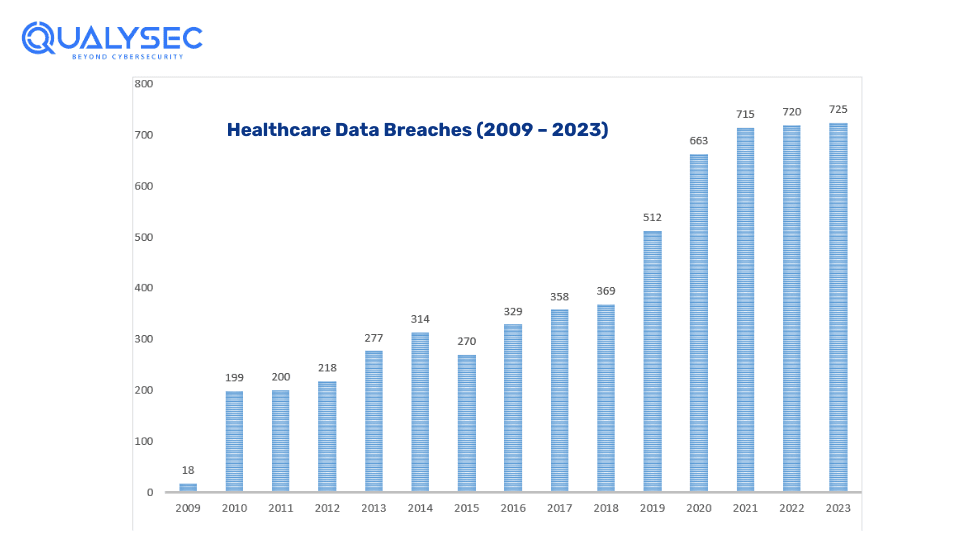
What is HIPAA Security Rule – A Brief Overview
The HIPAA security rule is a framework and federal rule, established in the United States in 1996, that protects the confidential electronic protected health information (ePHI) of individuals. The Health Insurance Portability and Accountability Act (HIPAA) regulations set standards for vital aspects of healthcare data management, including the right of patients to have data privacy.
The HIPAA security rule is in place so that organizations who store and manage this data, should have proper security measures to prevent healthcare data breaches by cybercriminals. This includes the physical security of the data, appropriate encryption standards, and other secure procedures to document, store, and share patient healthcare data.
The HIPAA security rule is managed by the Department of Health and Human Services and the Office for Civil Rights. Overall, the rule exists to ensure the confidentiality of patient information in the era of electronic record-keeping, digital data transfer, and (most recently) cloud services.
Importance of the HIPAA Security Rule
HIPAA is important because it protects confidential patient data from being breached. When the HIPAA rule was established in 1996, it was to primarily address one particular issue – health insurance coverage for individuals in between jobs. Due to the increased number of electronic transactions, the standards were modified to keep the ePHI secure when collected, received, maintained, and transmitted between healthcare providers.
Importance of HIPAA for Healthcare Organizations
HIPAA helped industries to transition from paper records to electronic copies of health information. HIPAA helped streamline administrative tasks within the healthcare sector, improve efficiency in the healthcare industry, and ensure that protected health information is transferred securely.
Importance of HIPAA for Patients
The greatest benefits of HIPAA rules are for the patients. It ensures healthcare providers, healthcare clearinghouses, health insurance plans, and business associates of HIPAA-covered entities must implement security measures to protect patient’s sensitive personal and health information. HIPAA ensures any of the data disclosed to healthcare providers is subjected to strict security controls. Patients also have control over whom their information is shared with.
4 Key Purposes and Goals of HIPAA Security Rule
The HIPAA security rule has transformed the healthcare industry, but its purpose still has some confusion. Here are 5 key points that will help you understand HIPAA better:
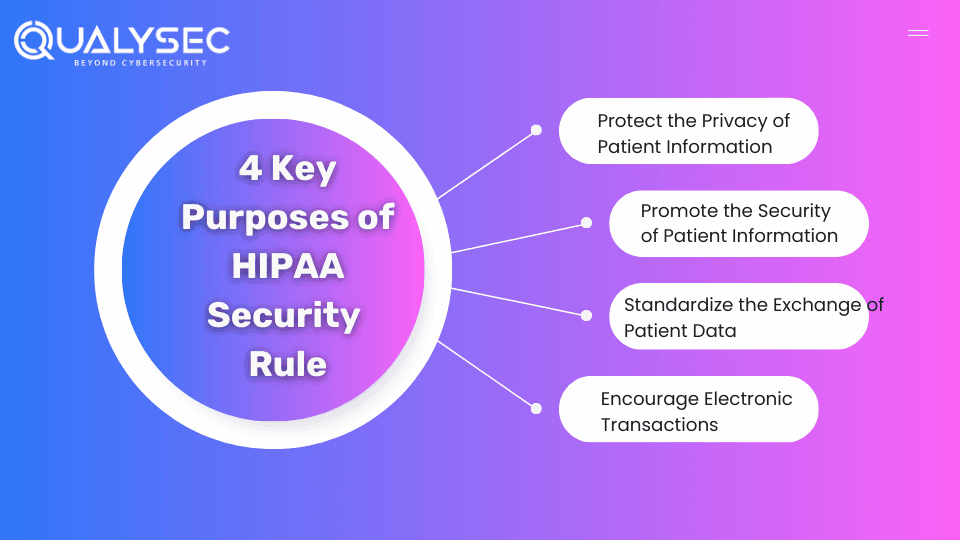
1. Protect the Privacy of Patient Information
The most vital purpose of HIPAA is to protect the privacy of confidential patient information. It is done by setting standards for the privacy of Protected Health Information (PHI). As a result, it ensures that healthcare providers, insurers, and other healthcare bodies take appropriate security measures to handle PHI.
2. Promote the Security of Patient Information
HIPAA’s fundamental purpose is to promote the security of patient information such as their medical records. The HIPAA standard includes using encryption and access controls for technical security and establishing policies and procedures for data management. Additionally, it limits physical access to servers or storage devices containing sensitive patient data.
3. Standardize the Exchange of Patient Data
Irrespective of where the data is processed, healthcare organizations must ensure accuracy and consistency by standardizing the transmission of health information. HIPAA addresses the past inefficiency of data storage and exchange by introducing standards for the format and content of electronic health records. As a result, it simplifies the information transmission among healthcare providers.
4. Encourage Electronic Transactions
HIPAA promotes the use of electronic transactions by establishing standards for the handling and disclosure of protected health information (PHI). It requires healthcare providers, insurers, and other bodies handling PHI to take appropriate security measures.
Moreover, HIPAA encourages interoperability among various healthcare systems through standardized code sets and electronic transactions in processes such as billing. This ensures that only authorized individuals have access to PHI, which safeguards individuals’ rights to their medical records.
3 Key HIPAA Security Rule Requirements
The HIPAA security rules require organizations to keep the patient’s private data secure. This includes three types of safeguards such as – administrative, physical, and technical.
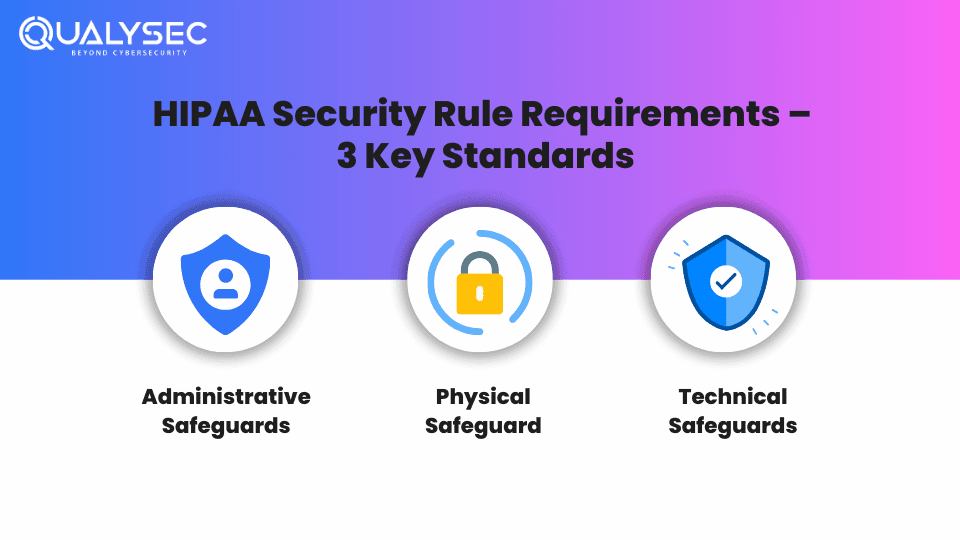
1. Administrative Safeguards
Administrative safeguards involve creating and implementing policies, guidelines, and processes that ensure the confidentiality and security of private health information. These policies include workforce education, risk assessment, appointing a security officer, management, incident response plans, and disaster recovery plans.
According to HIPAA administrative safeguards, organizations need several standards to maintain compliance, such as:
- Security management process
- Assigned security responsibility
- Information access management
- Workforce Security
- Security awareness and training
- Security incident procedures
- Contingency plan
- Evaluation
- Business associate contracts and other arrangements
2. Physical Safeguard
Every healthcare organization must consider physical access to electronic health records when implementing standards. This means having robust security measures at office premises and remote locations such as homes of staff accessing electronically protected health information (ePHI).
In short, physical security protects the physical surroundings where data is stored or accessed. This includes restricting access to data storage areas, managing access to computer networks, and managing access to removable media such as disks or pen drives.
Before you finalize the physical security measures, consider:
- Will your measures provide access to data when needed?
- Can they be implemented by relevant personnel effectively?
- Do they index which individuals will be responsible for restoring data?
3. Technical Safeguards
Technical safeguards ensure that electronic health data is secure from hackers and cyber attackers. Common technical data security measures include:
- Strong password protection
- Data encryption
- Security audits
- Authentication procedures
- Data integrity protections
- System activity monitoring
- Contingency plans after system failure or attack
HIPAA Security Rule Compliance Checklist
The HIPAA security rule checklist outlines 10 key areas that organizations must address to secure electronic protected health information (ePHI). It includes tasks like penetration testing and having contingency plans for emergencies. This checklist is designed to help organizations comply with HIPAA security standards and protect sensitive patient data from potential threats and weaknesses.
HIPAA Security Rule Checklist:
- Performing penetration testing/risk analysis to identify potential risks and vulnerabilities.
- Implementing policies and procedures to maintain and monitor the security of electronic protected health information (ePHI).
- Restricting access to ePHI to authorized personnel who require access to perform their jobs.
- Ensuring all ePHI is encrypted and securely stored.
- Implementing protocols to address security incidents and breaches.
- Providing HIPAA security training to all staff members.
- Regularly reviewing and updating security measures to ensure they are effective and up to date.
- Creating a contingency plan for disasters and emergencies that may affect ePHI.
- Ensuring all the third-party contractors and vendors comply with HIPAA security standards.
- Conducting regular security audits and assessments to maintain compliance with HIPAA security standards.
What Happens if You Don’t Comply with HIPAA Security Rules
If an organization fails to comply with HIPAA security standards, it may face legal penalties and heavy fines. The fines can range from $100 to $50,000 per violation, with a maximum fine of $1.5 million annually.
Additionally, if an organization lacks the knowledge of the rules but still violates HIPAA in some way, it may be sentenced to up to 12 months of imprisonment as a criminal penalty.
If they purposefully deceived to get access to protected health information, they could face up to 5 years of imprisonment. And, if they had any malicious intent, then it could result in 10 years of prison.
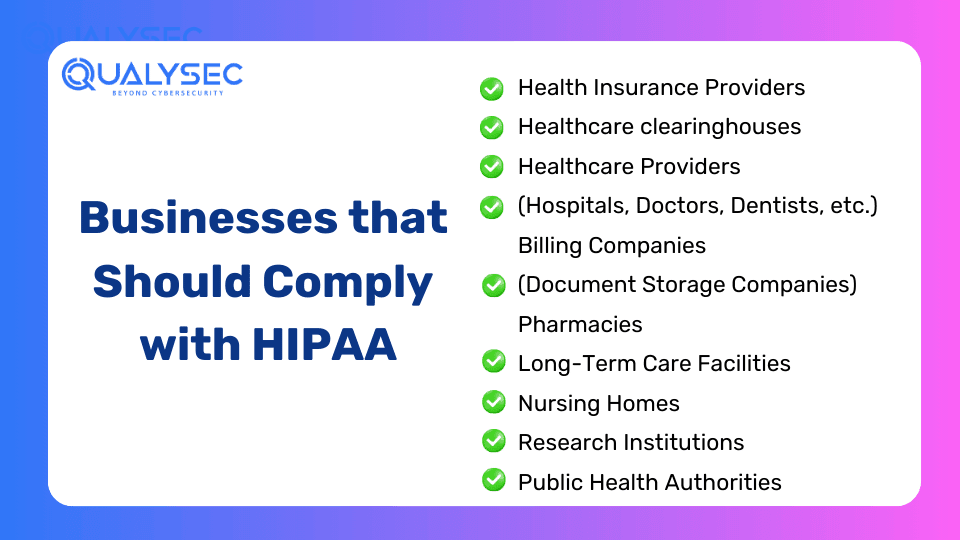
How Qualysec can help you with HIPAA Compliance?
Qualysec Technologies is a leading penetration company, that offers a wide range of vulnerability testing and risk assessment services to various industries, including healthcare. Since HIPAA standards require organizations to perform risk assessments and security audits, Qualysec can help them achieve this task.
Based on your business, we can provide the following services:
- Web application penetration testing
- Mobile application penetration testing
- Cloud penetration testing
- Network penetration testing
- API penetration testing
- IoT device penetration testing
- AI/ML application penetration testing
If you have any questions, then click the link below and talk to our cybersecurity expert!
Talk to our Cybersecurity Expert to discuss your specific needs and how we can help your business.
Conclusion
If not properly secured, healthcare data can be stolen or may be used to commit healthcare fraud. Healthcare data is a valuable item in the black market because it can be used by uninsured or underinsured individuals to get expensive healthcare treatment. Healthcare providers need to comply with HIPAA security rules to build trust among patients. So, to comply with HIPAA rules, one must follow certain procedures and implement a few security measures like security testing and auditing.
Join hands with Qualysec to secure your patient’s healthcare data and comply with HIPAA standards.
FAQs
Q: How to comply with HIPAA?
A: Comply with HIPAA by performing the following 10 tasks:
- Perform penetration testing/risk analysis to identify potential risks and vulnerabilities.
- Implement policies and procedures to maintain and monitor the security of electronic protected health information (ePHI).
- Restrict access to ePHI to authorized personnel who require access to perform their jobs.
- Ensure all ePHI is encrypted and securely stored.
- Implement protocols to address security incidents and breaches.
- Provide HIPAA security training to all staff members.
- Regularly review and update security measures to ensure they are effective and up to date.
- Create a contingency plan for disasters and emergencies that may affect ePHI.
- Ensure all the third-party contractors and vendors
- Conduct regular security audits and assessments
Q: What is HIPAA in cyber security?
A: The Health Insurance Portability and Accountability Act (HIPAA) was established in 1996 by the US government, which provides rules and regulations to protect the privacy of electronically protected health information. (ePHI).
Q: What is the HIPAA security rule authentication?
A: The authentication and access control measures in the HIPAA security rule ensure that only authorized personnel can access the protected health information (PHI). As a result, it helps organizations to verify the identity of anyone who attempts to access the PHI.
Q: How can I ensure my organization is HIPAA compliant?
A: To ensure your organization is HIPAA compliant, you need to work with a certified third-party vendor that will help you with security audits. An audit will reveal whether you match all the checklists needed to comply with the HIPAA security rules.
Ensure your healthcare solution is globally compliant.
Qualysec helps you meet HIPAA, FDA, ISO, and more. Contact us today!
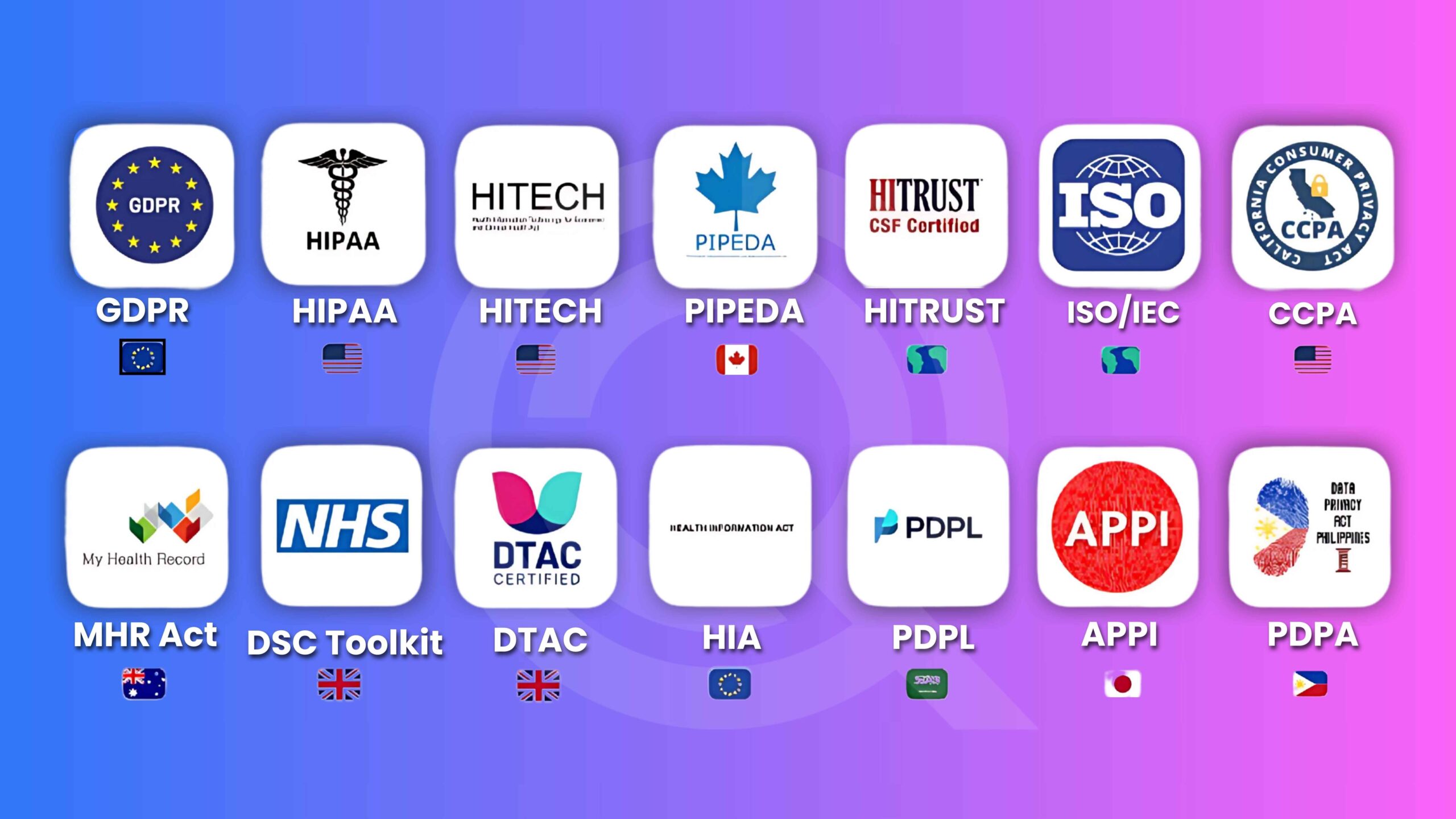










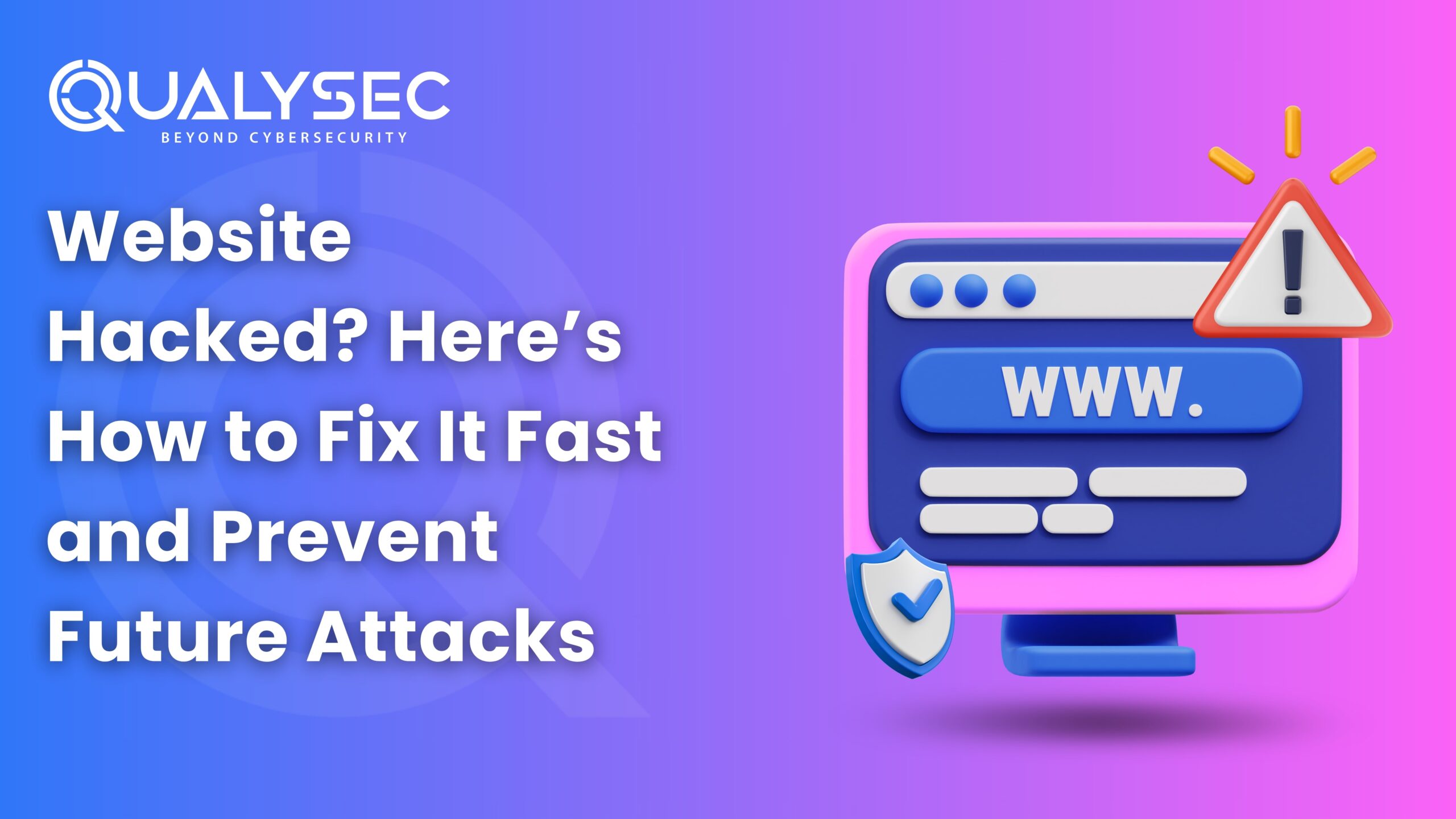
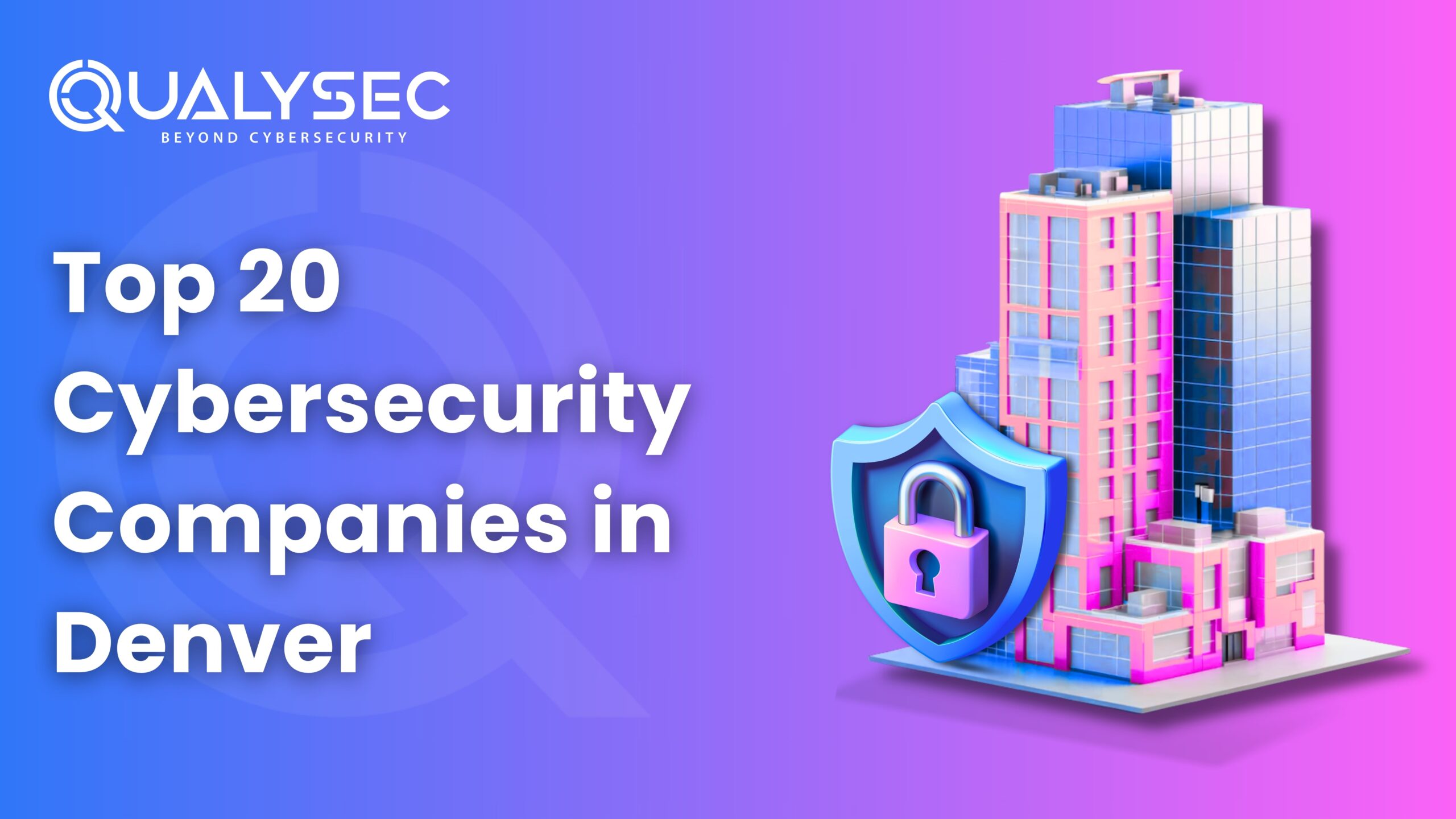
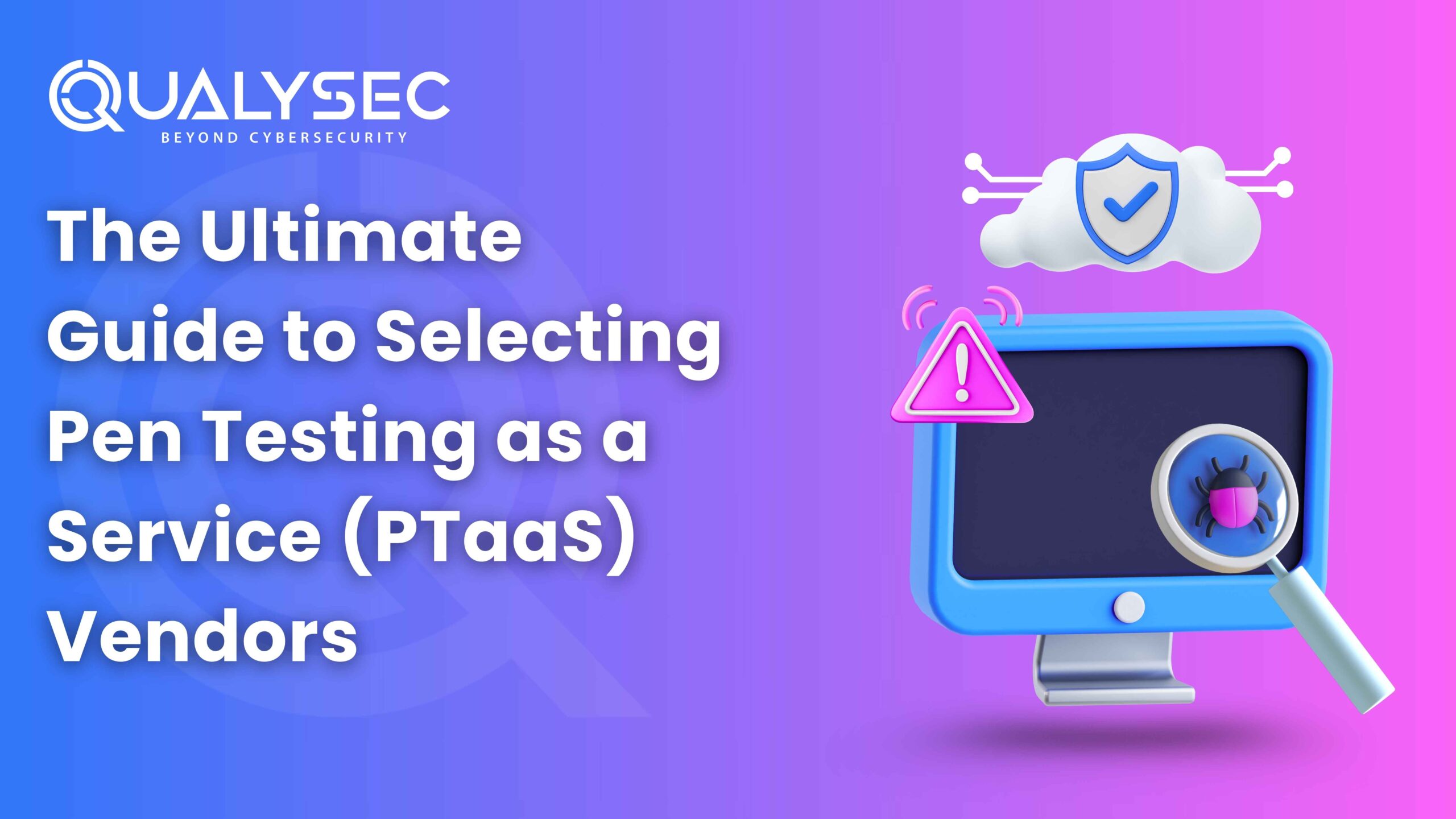
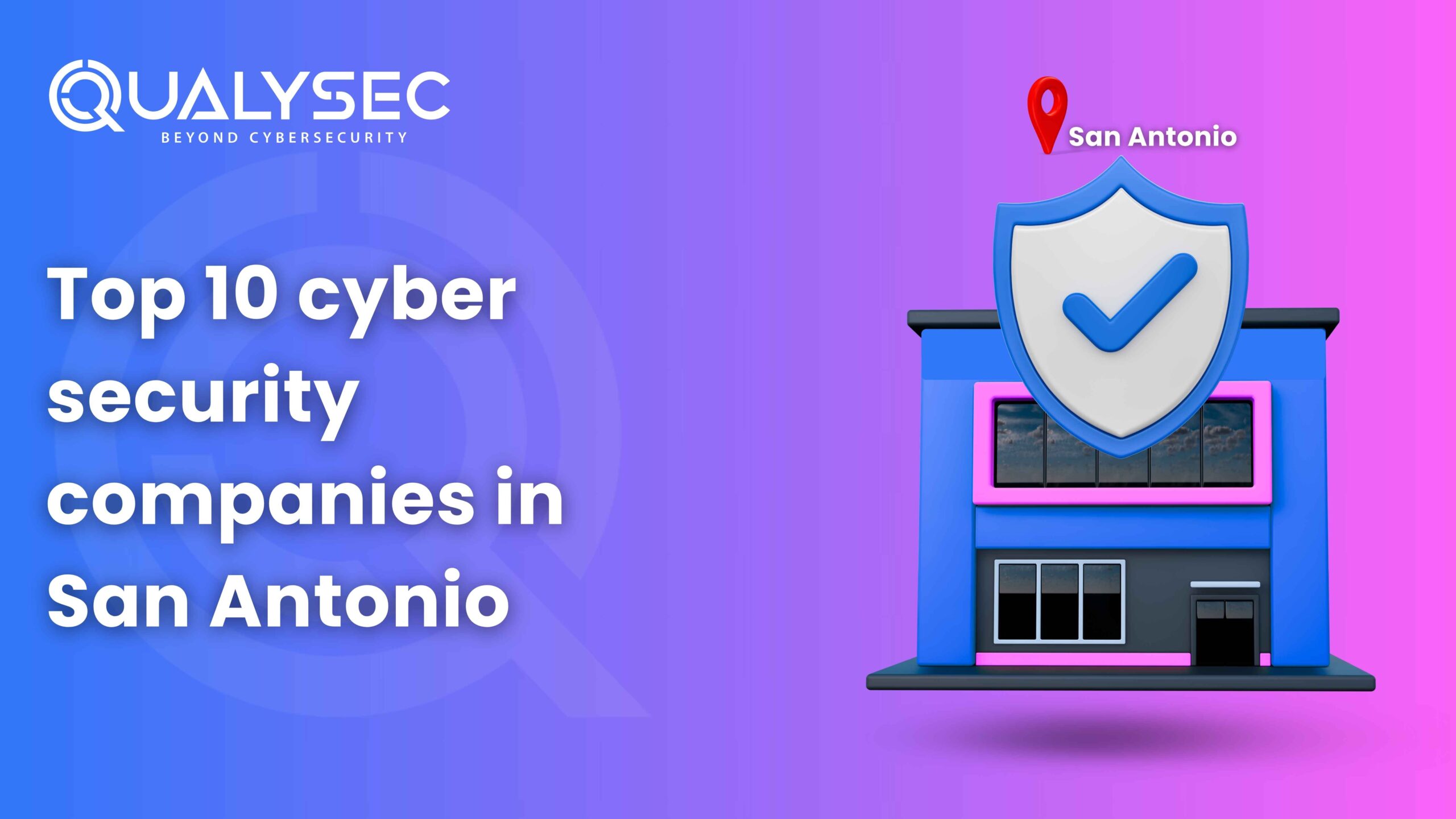
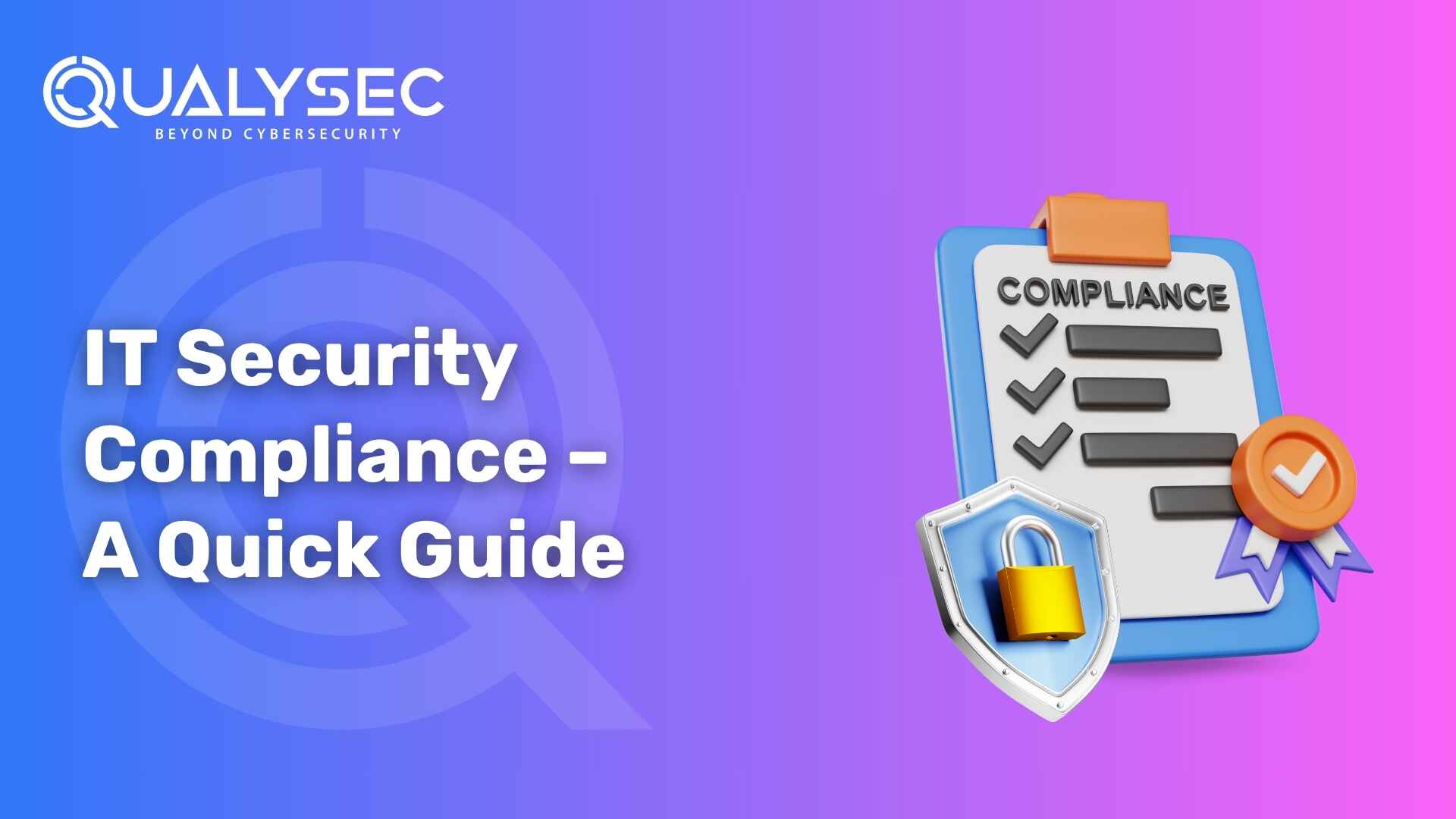
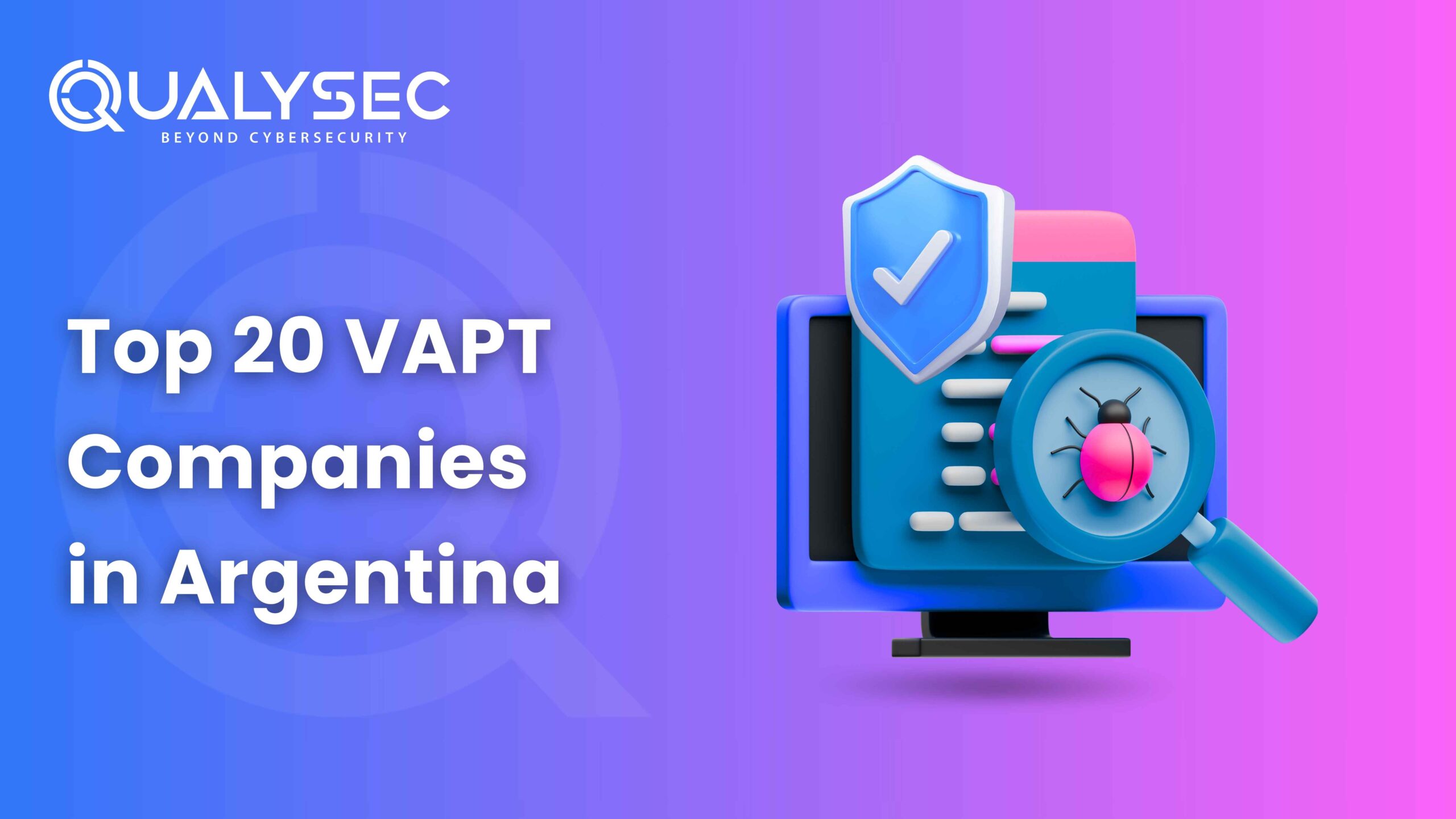
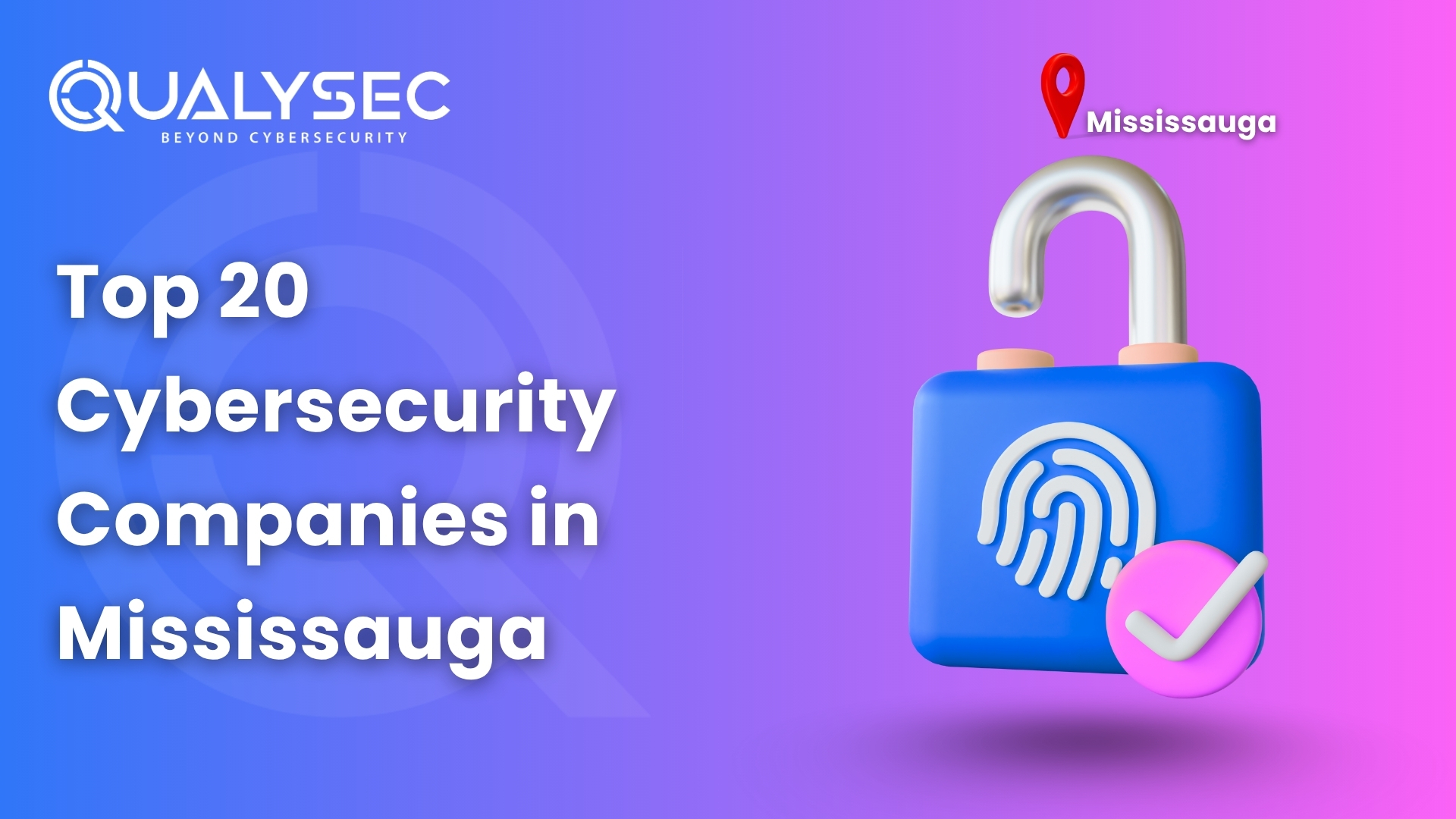
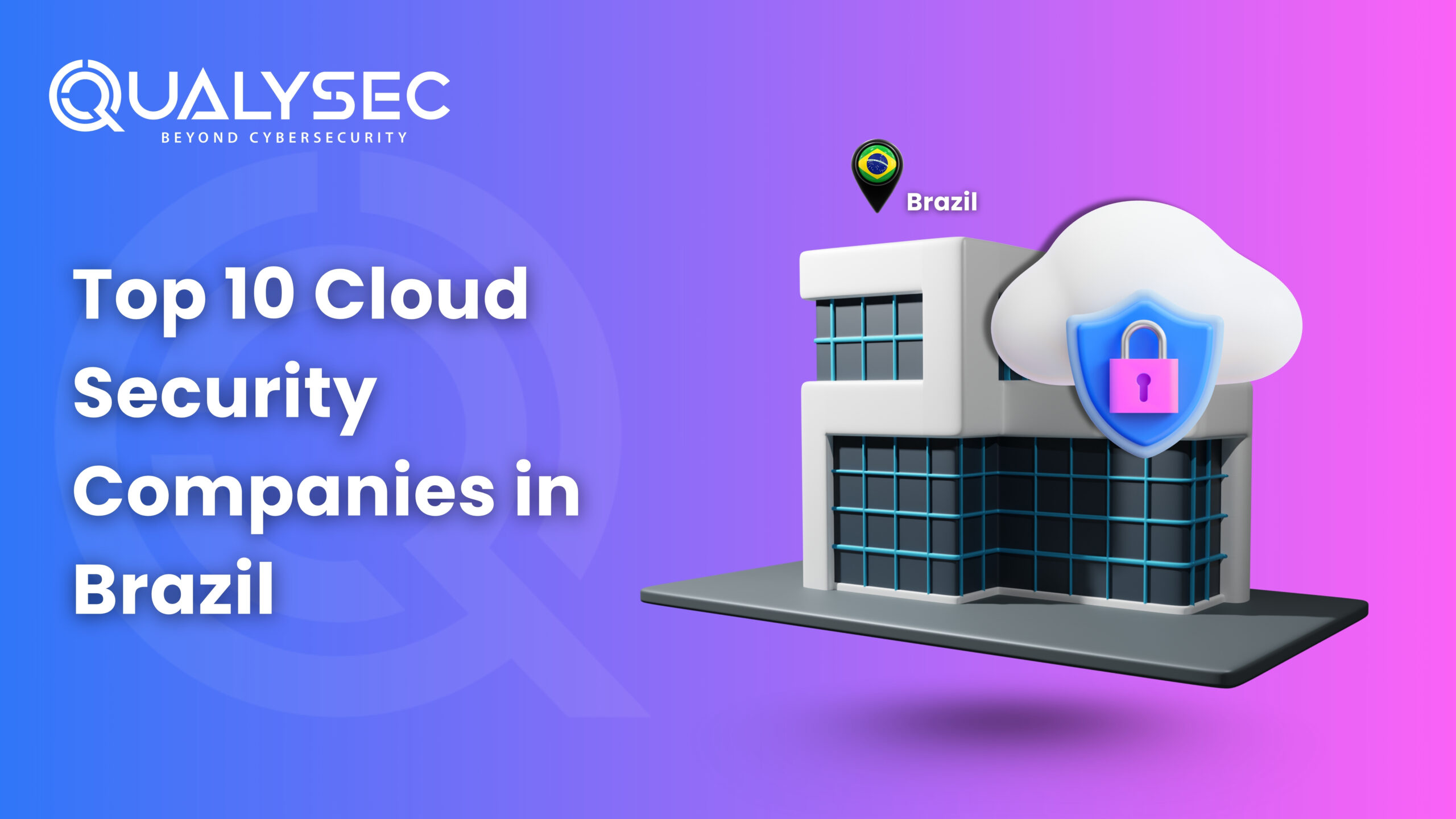
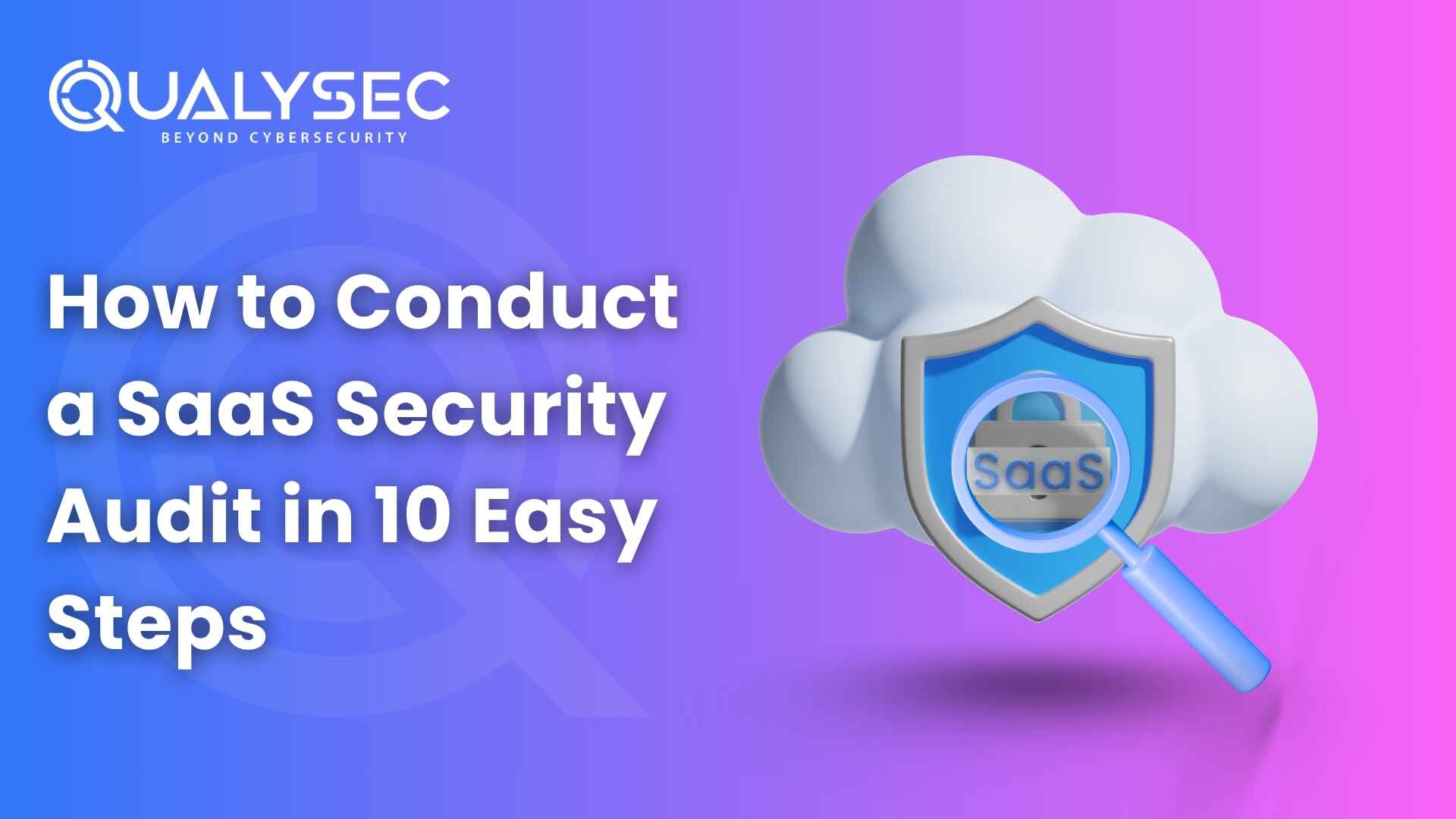
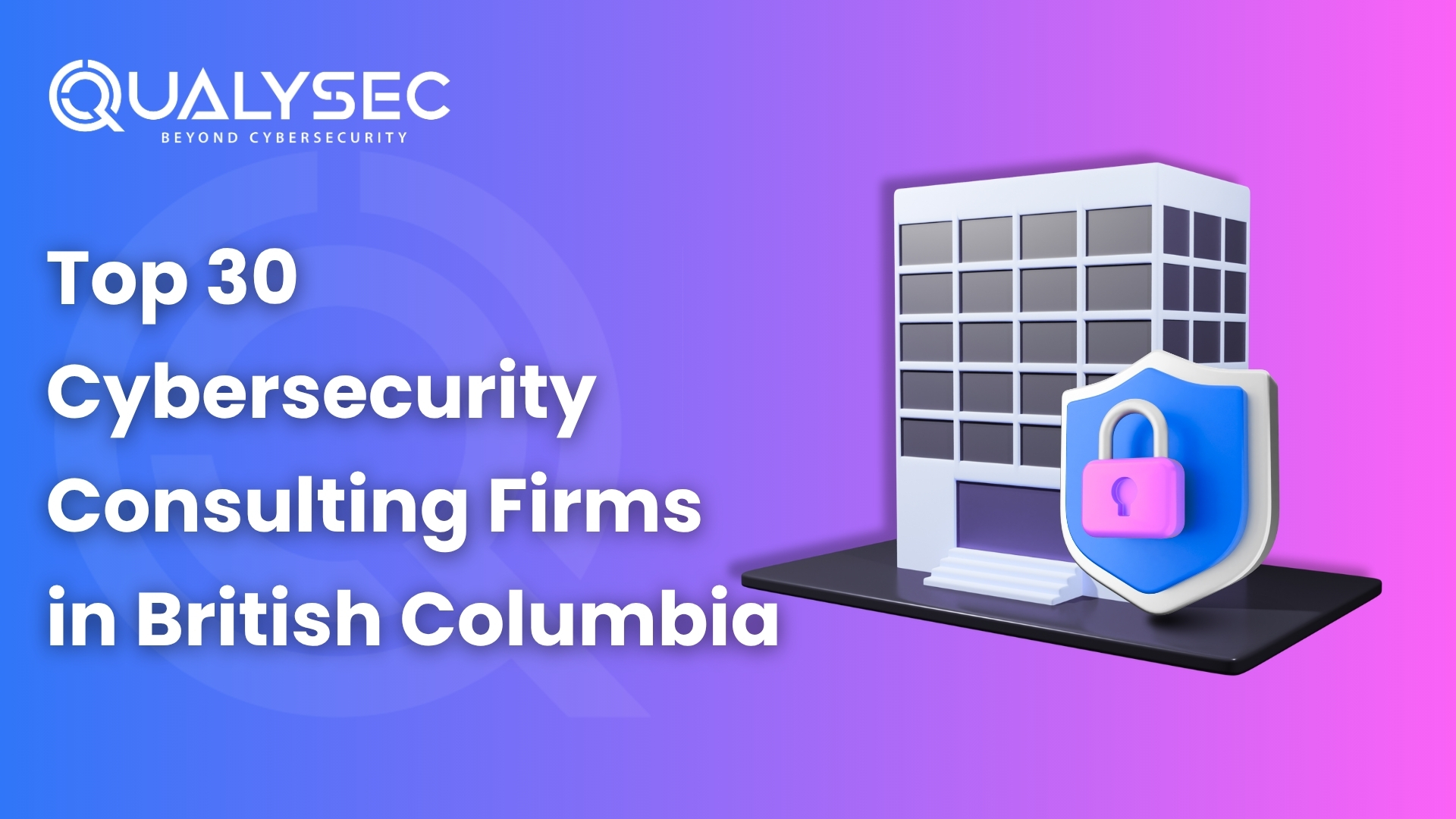

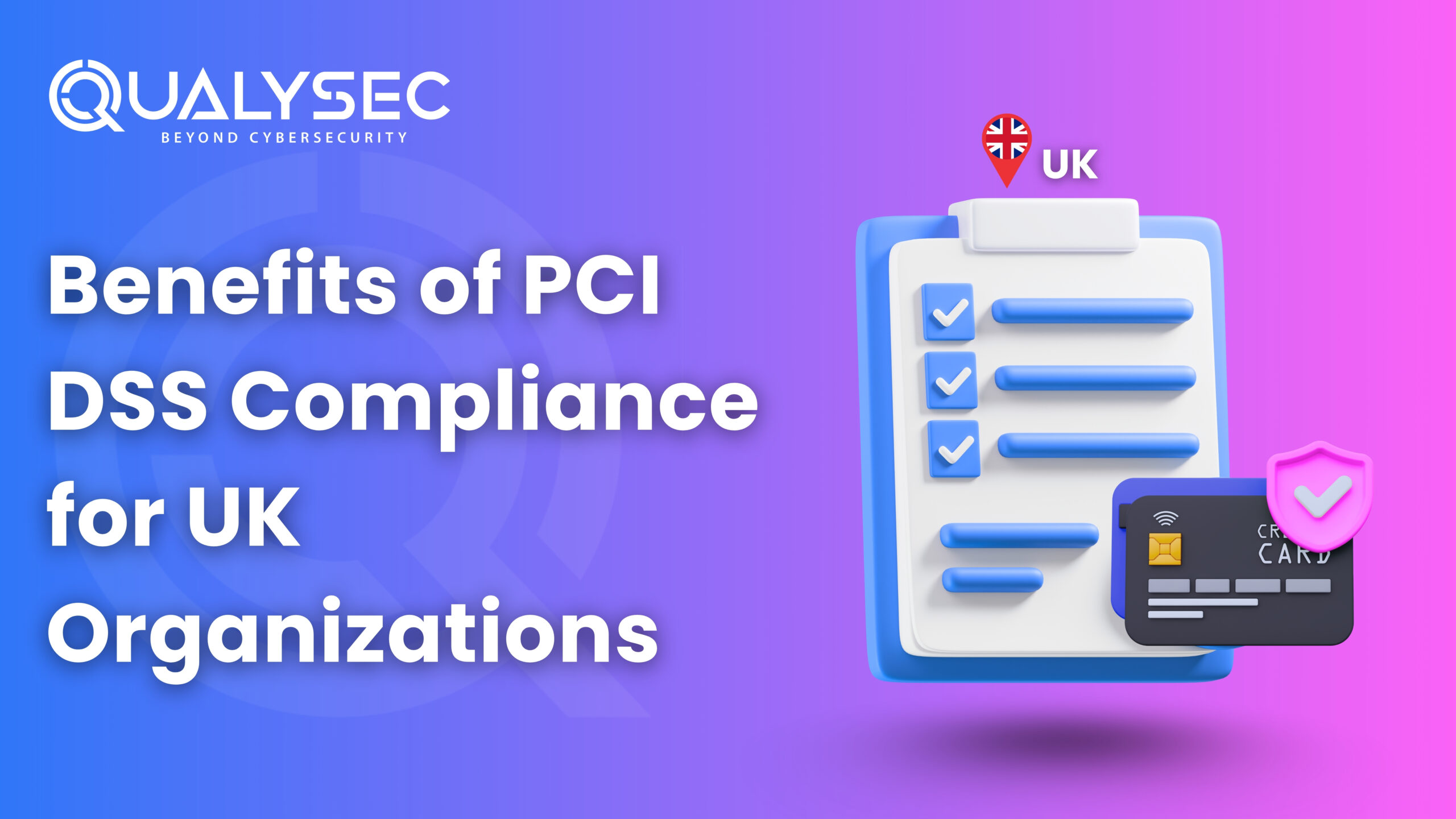

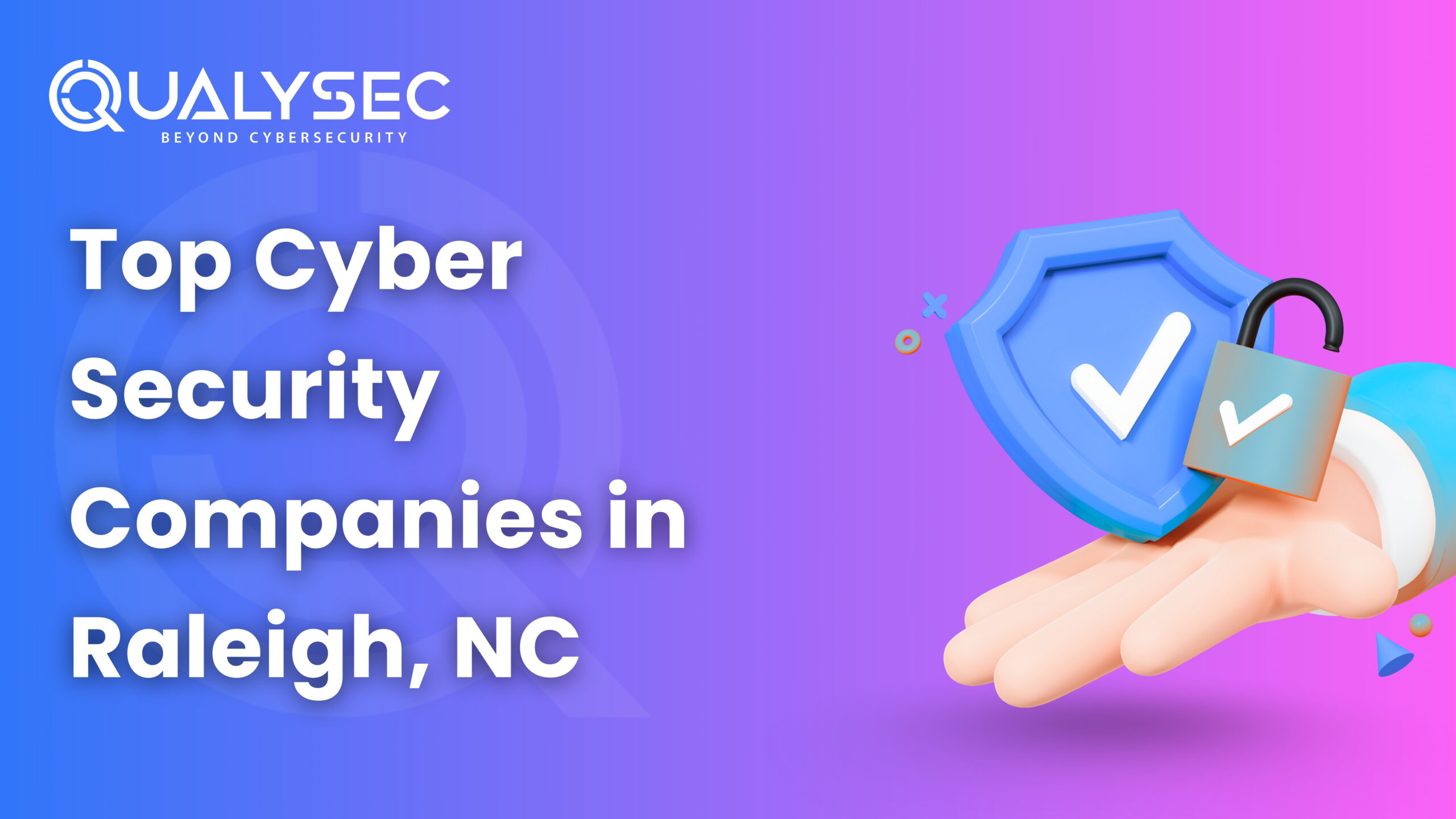
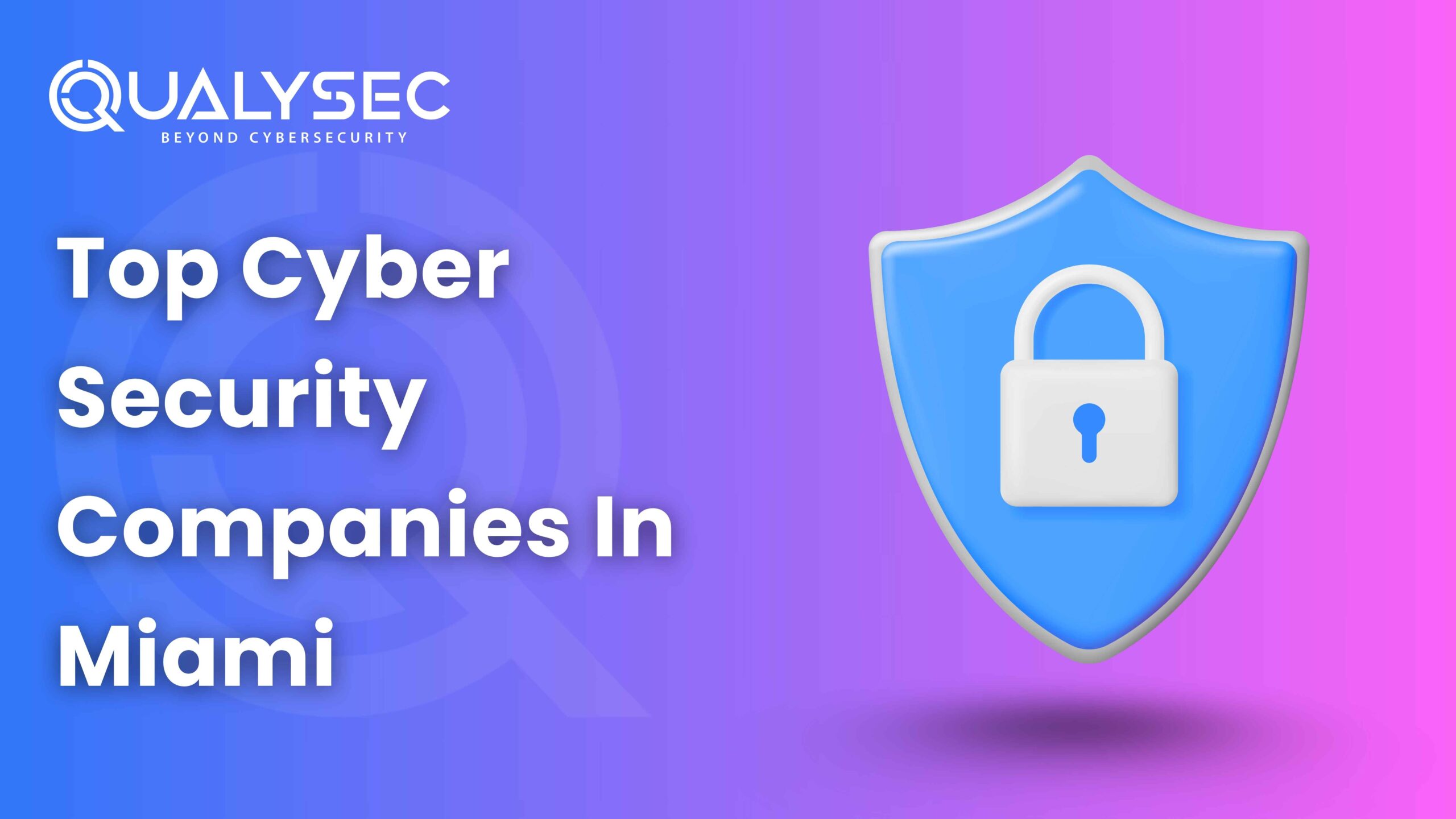

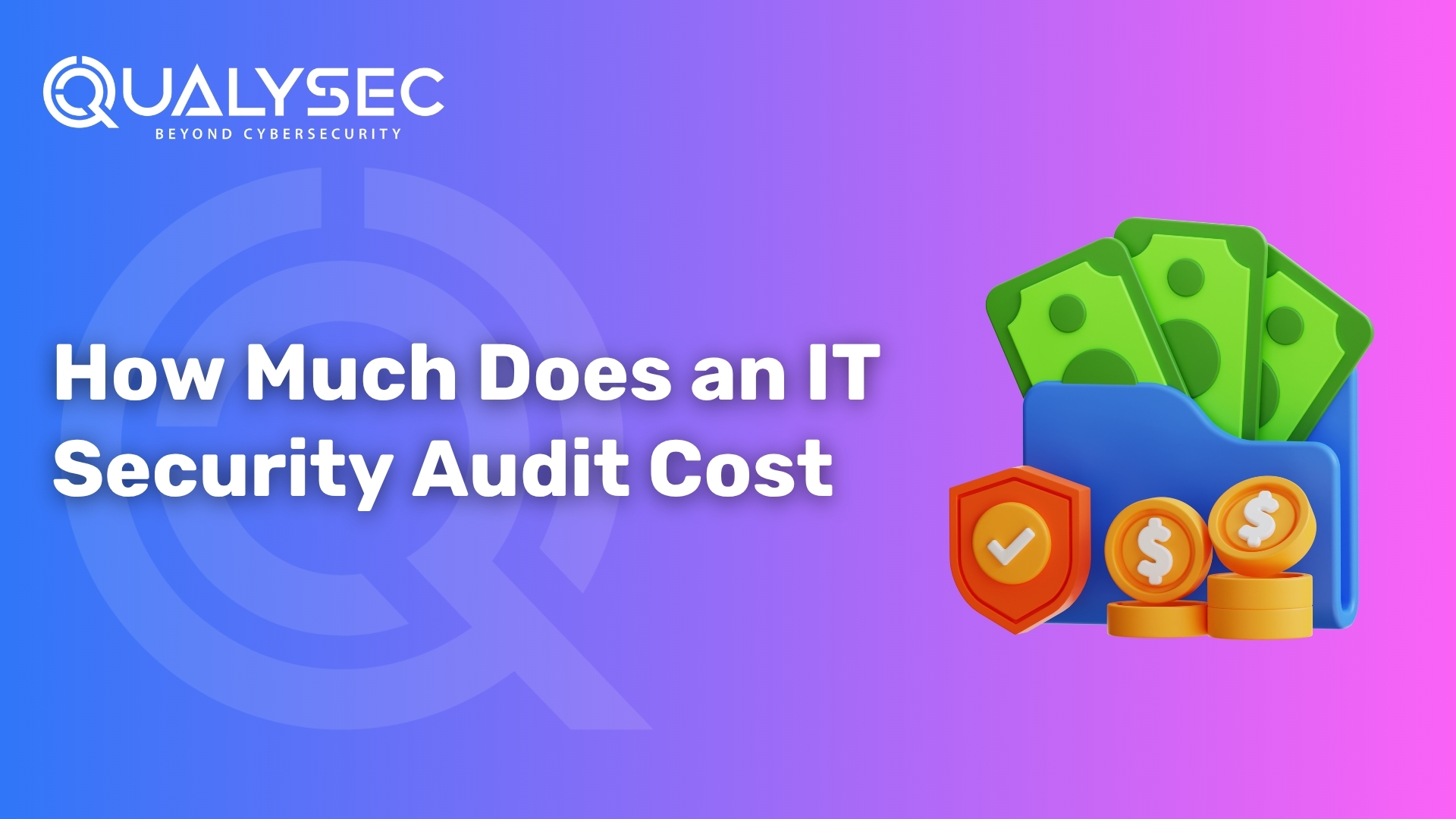
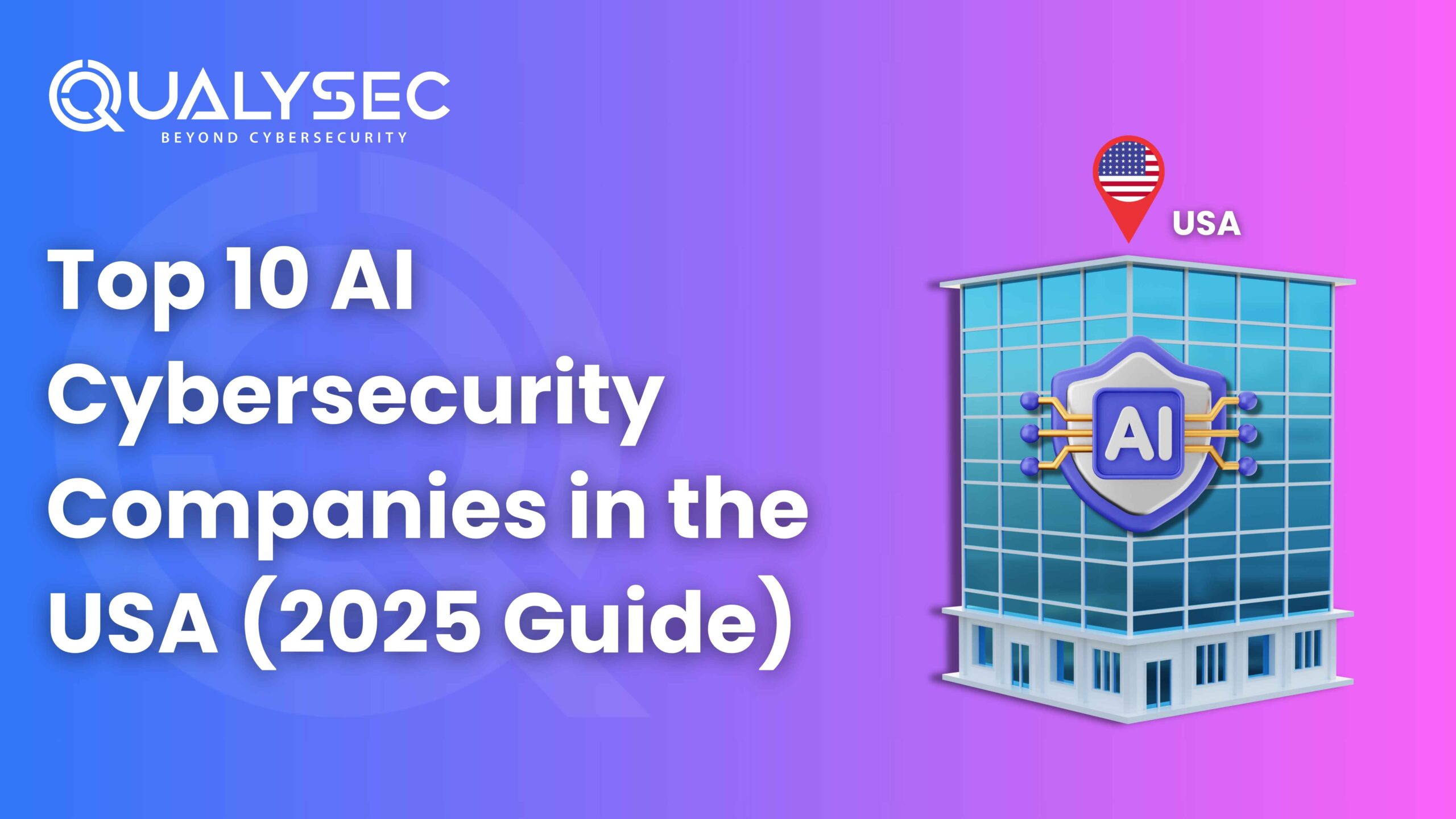
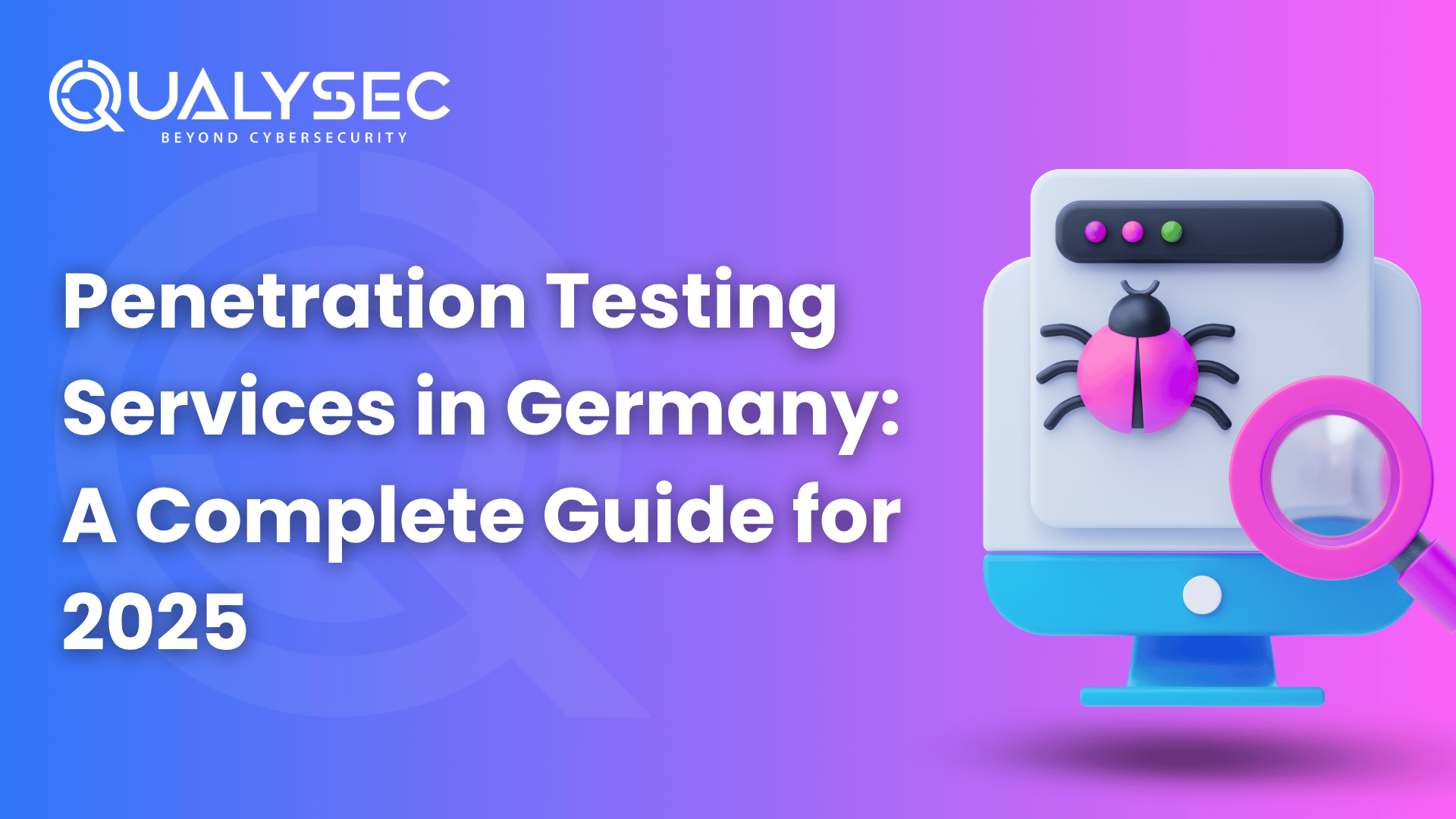
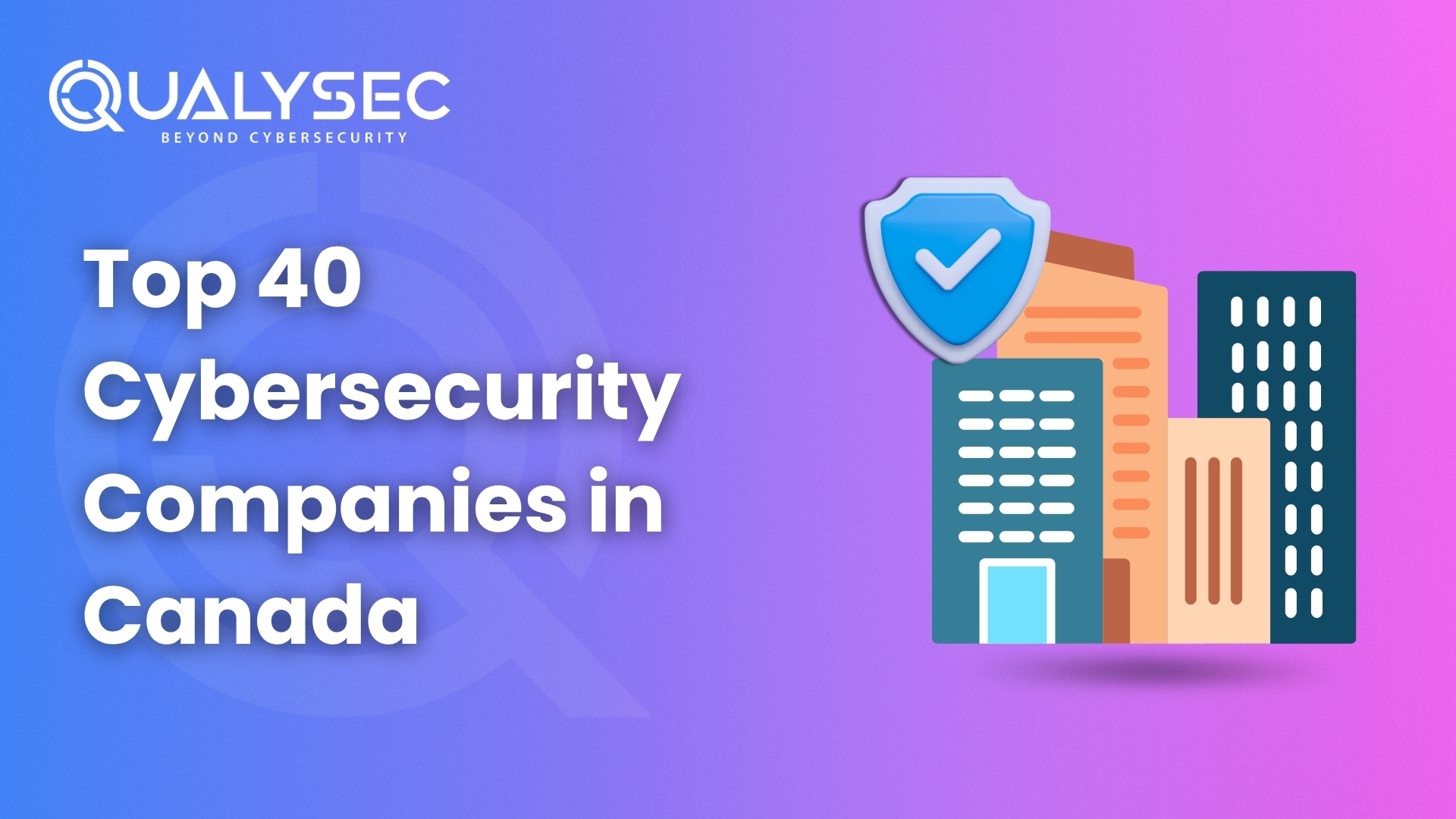
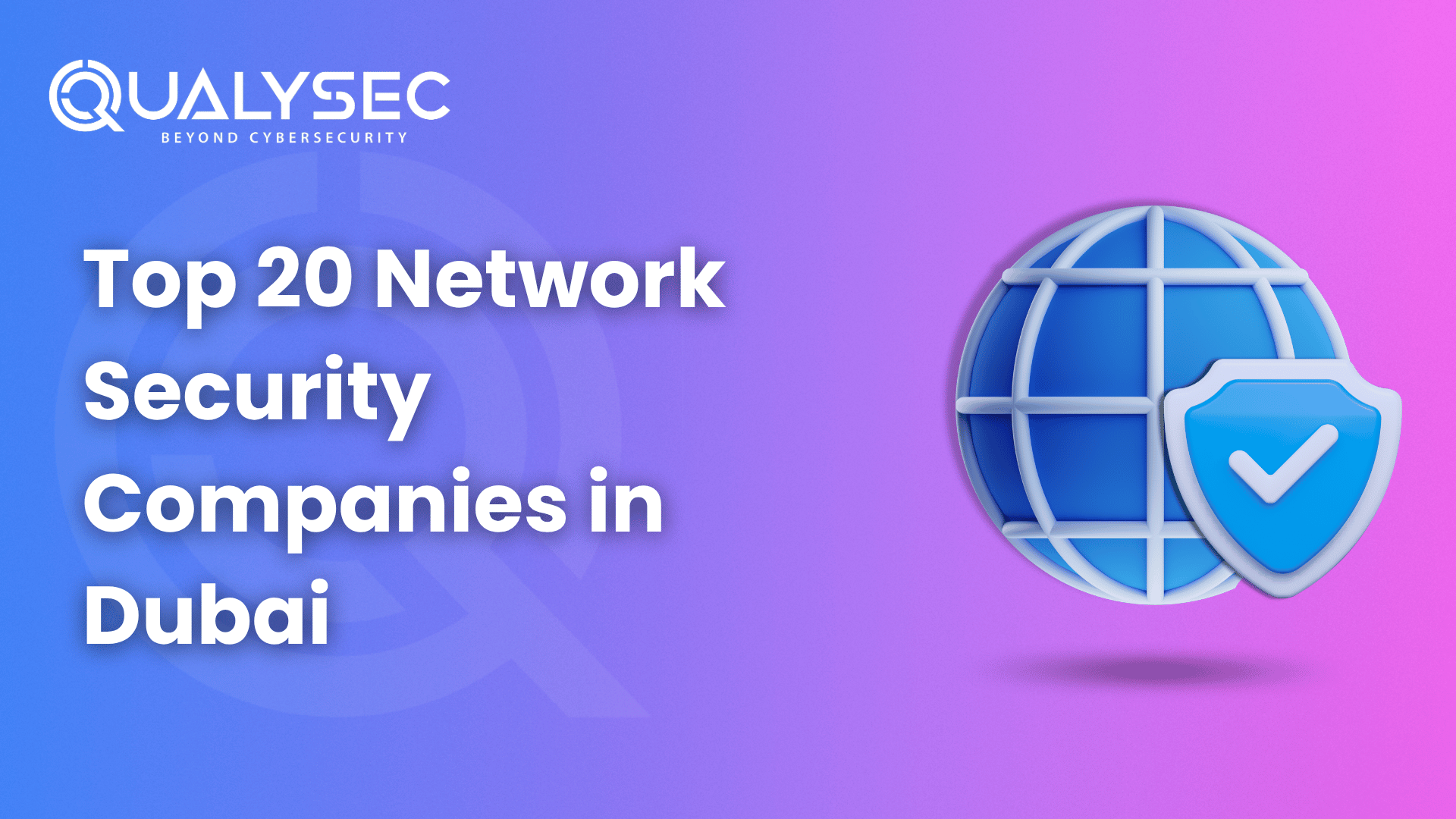
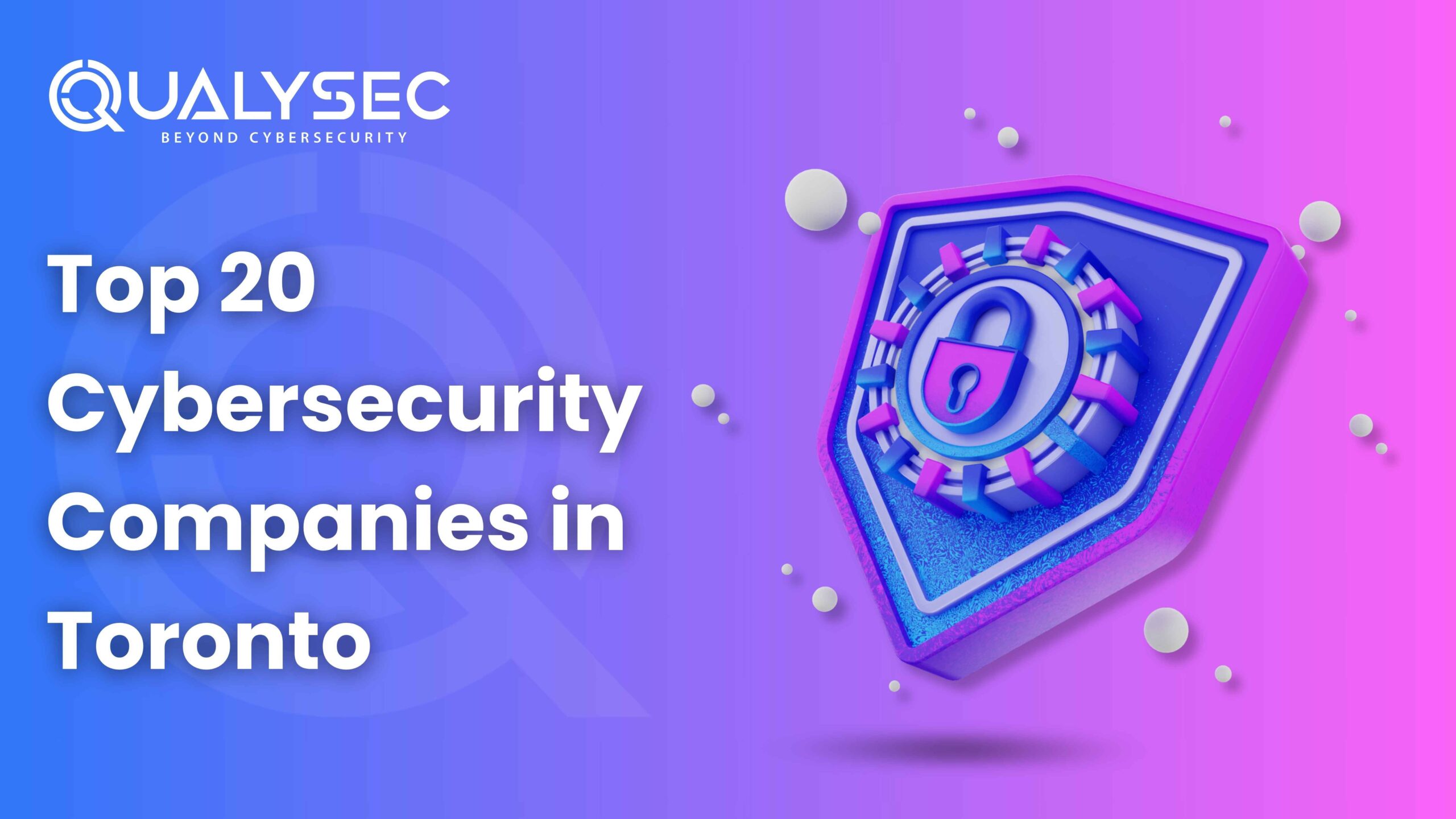
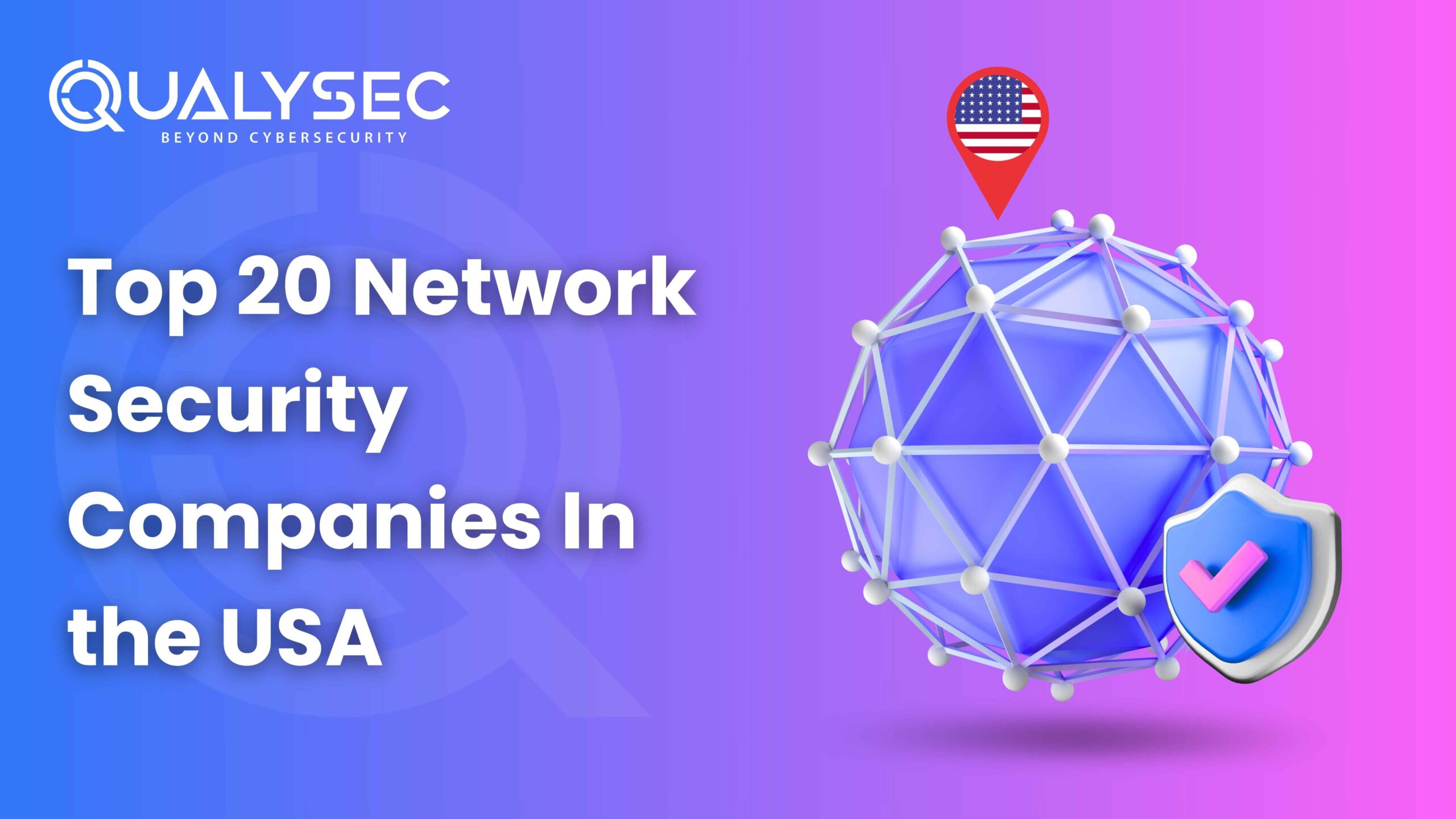
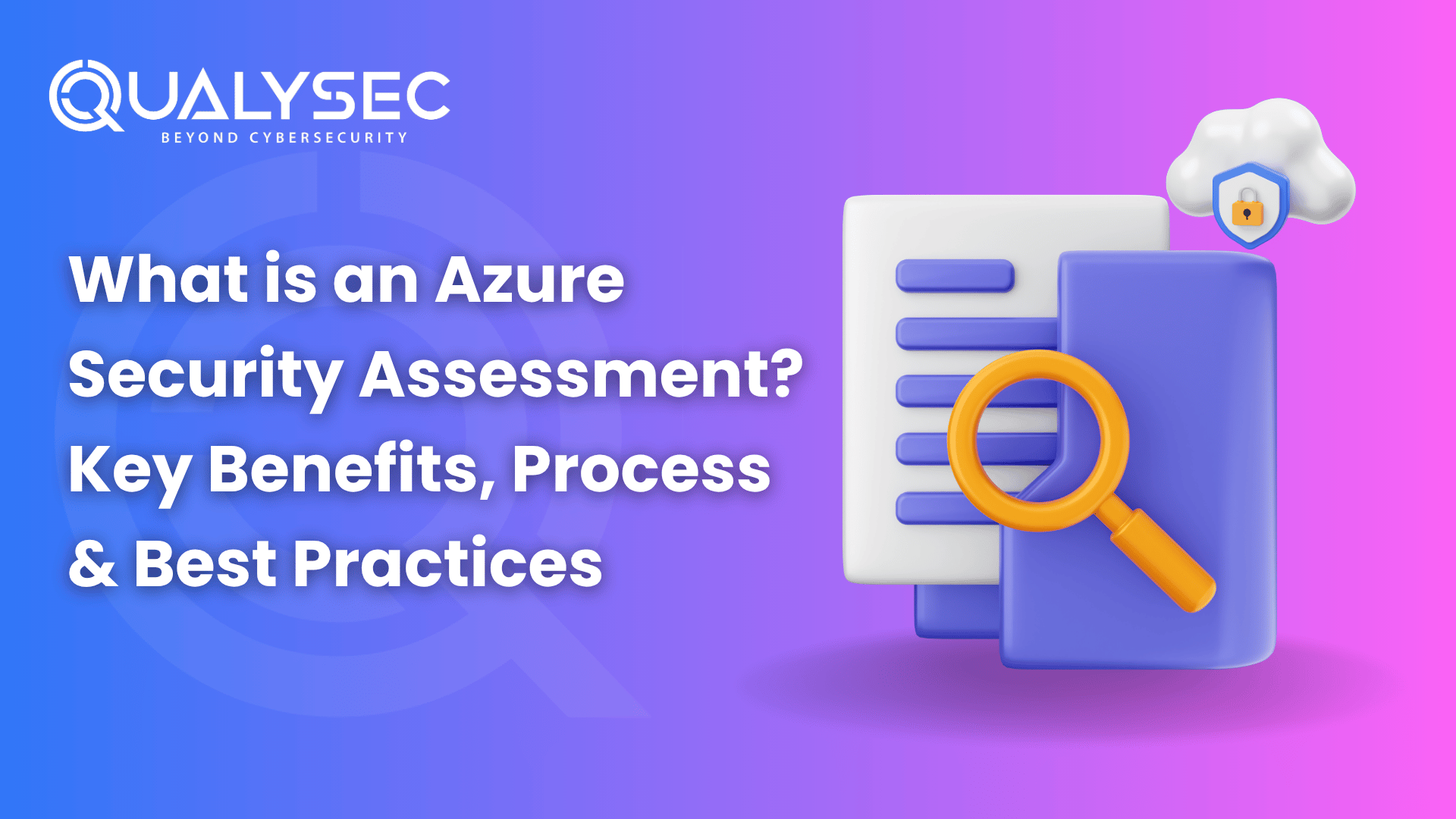
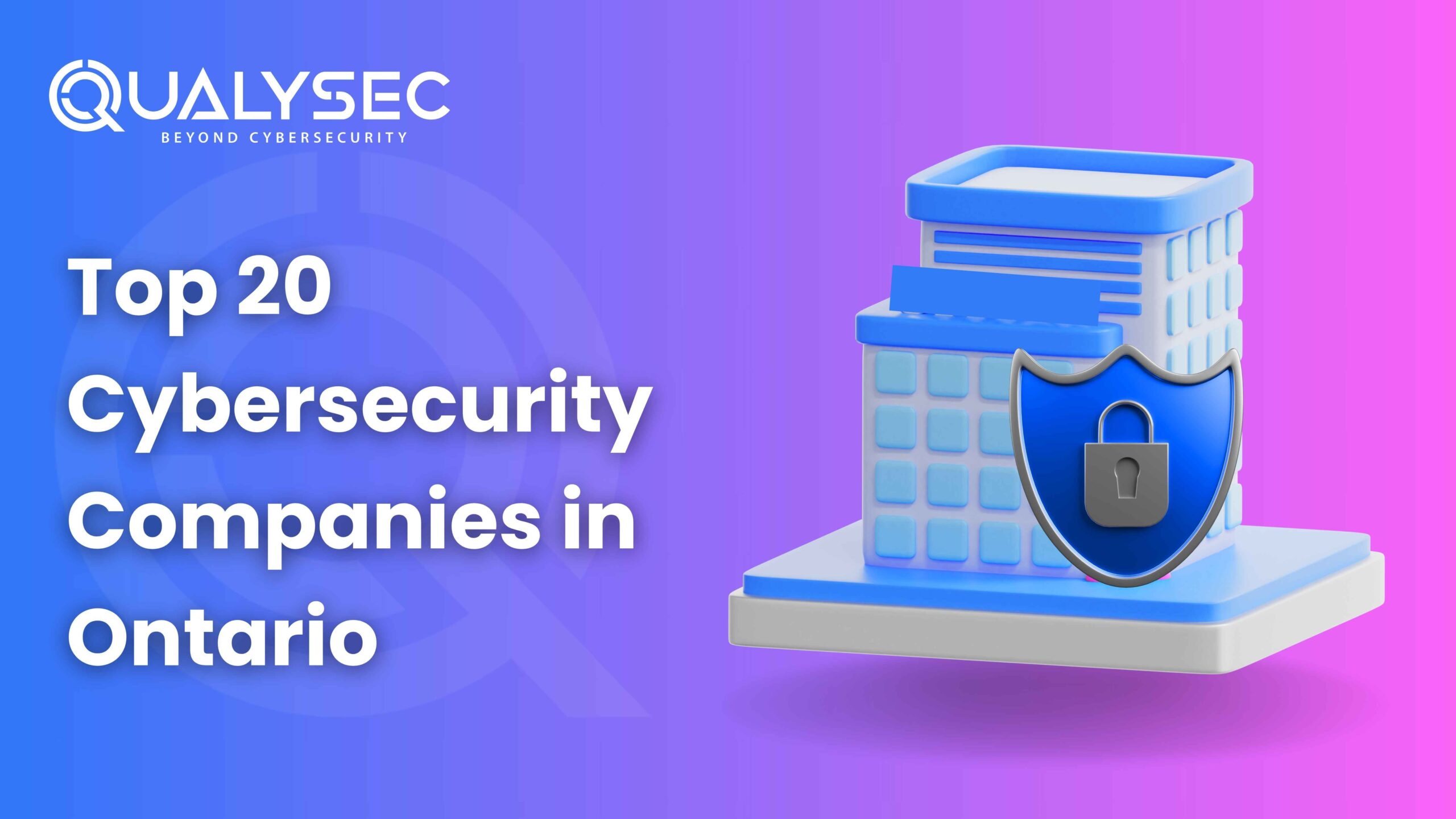
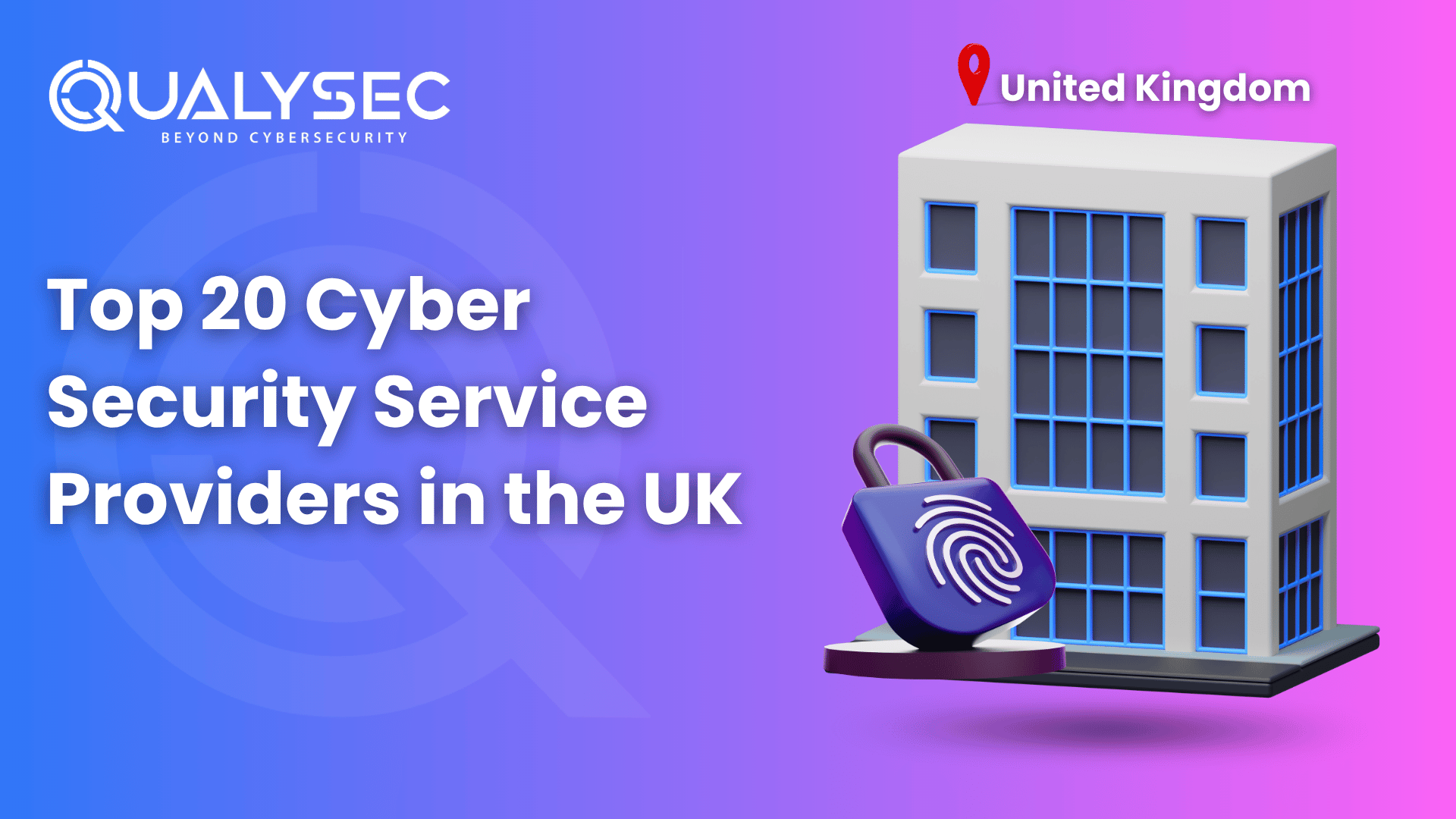
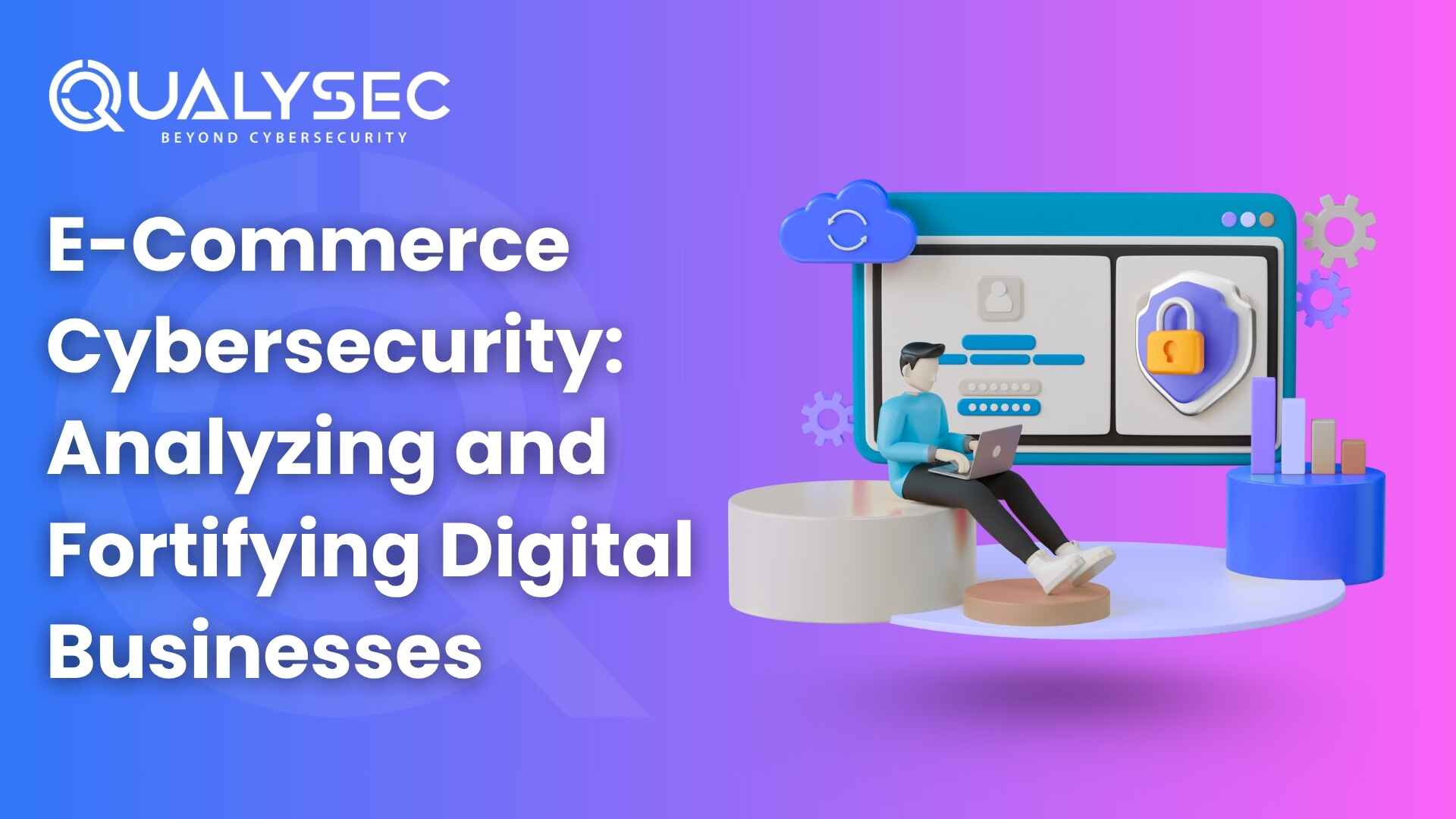
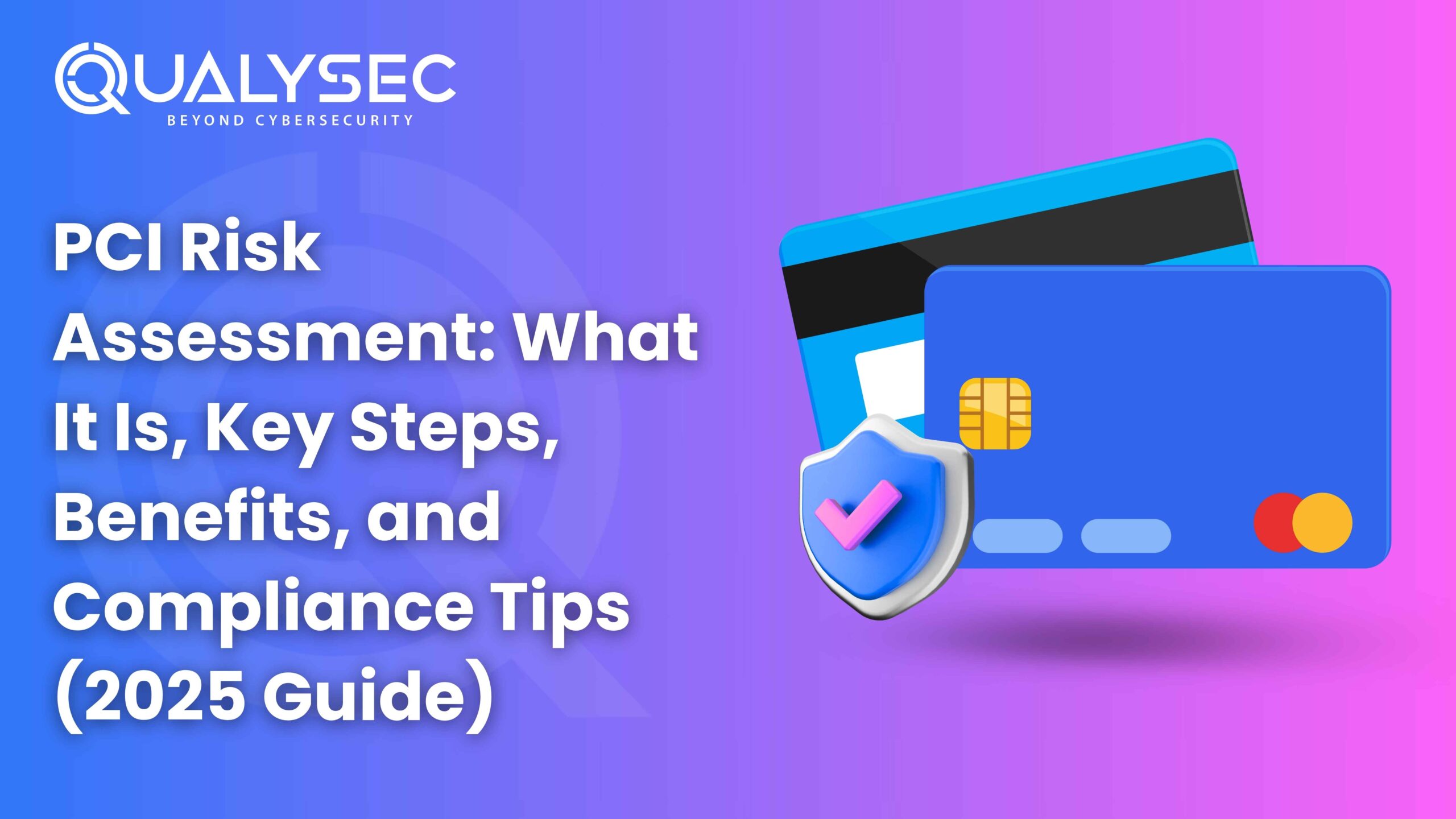
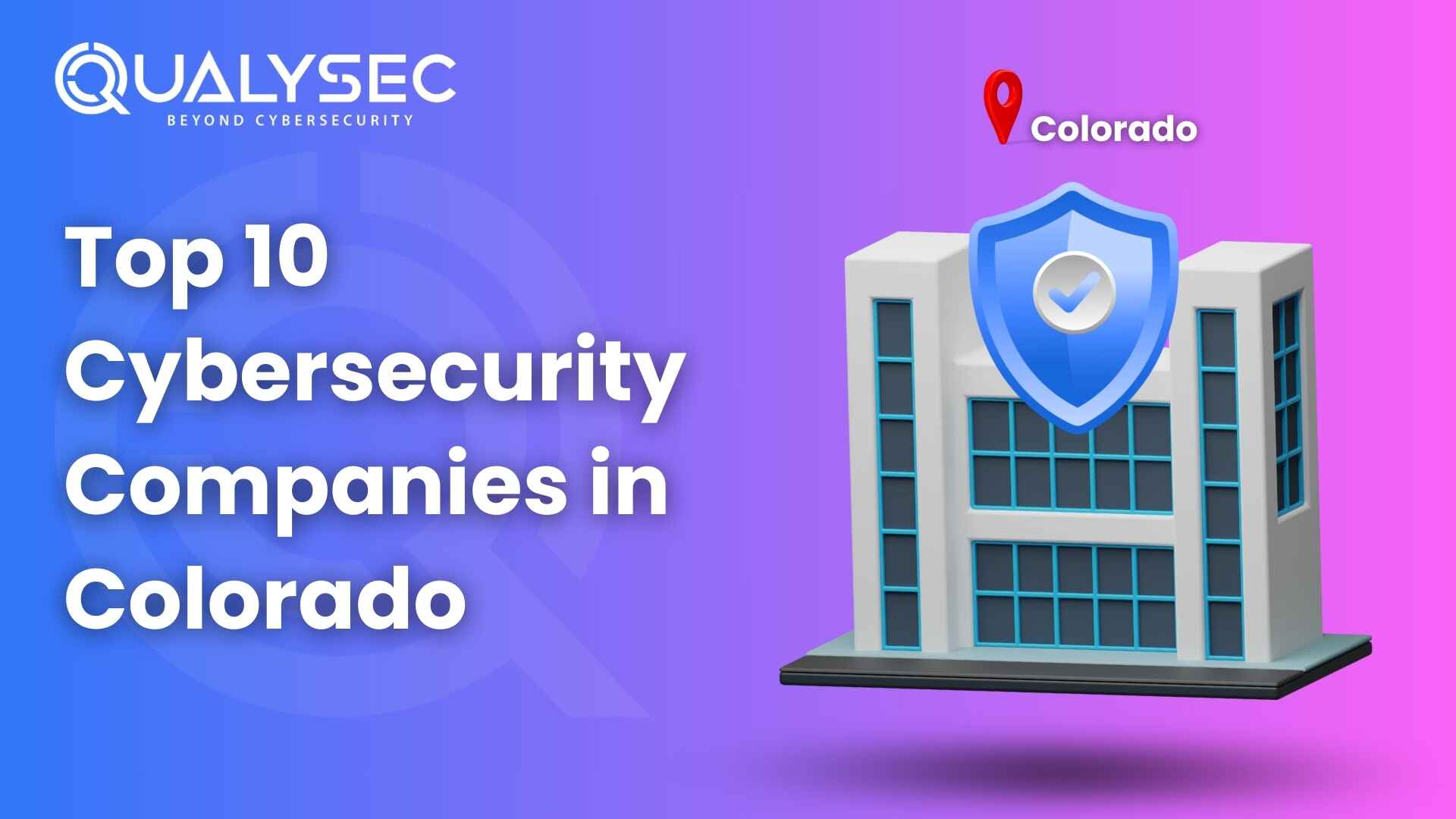

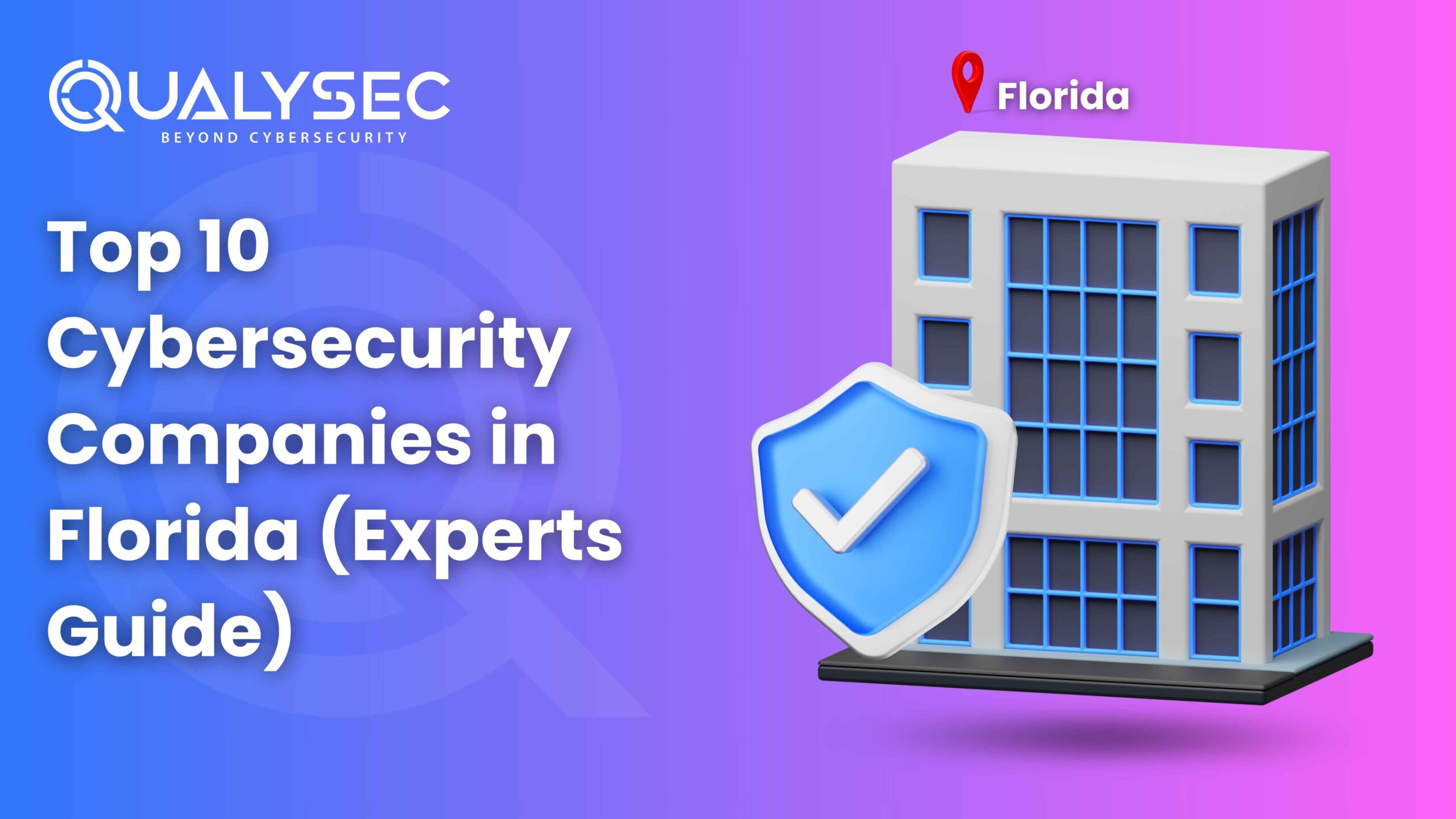










































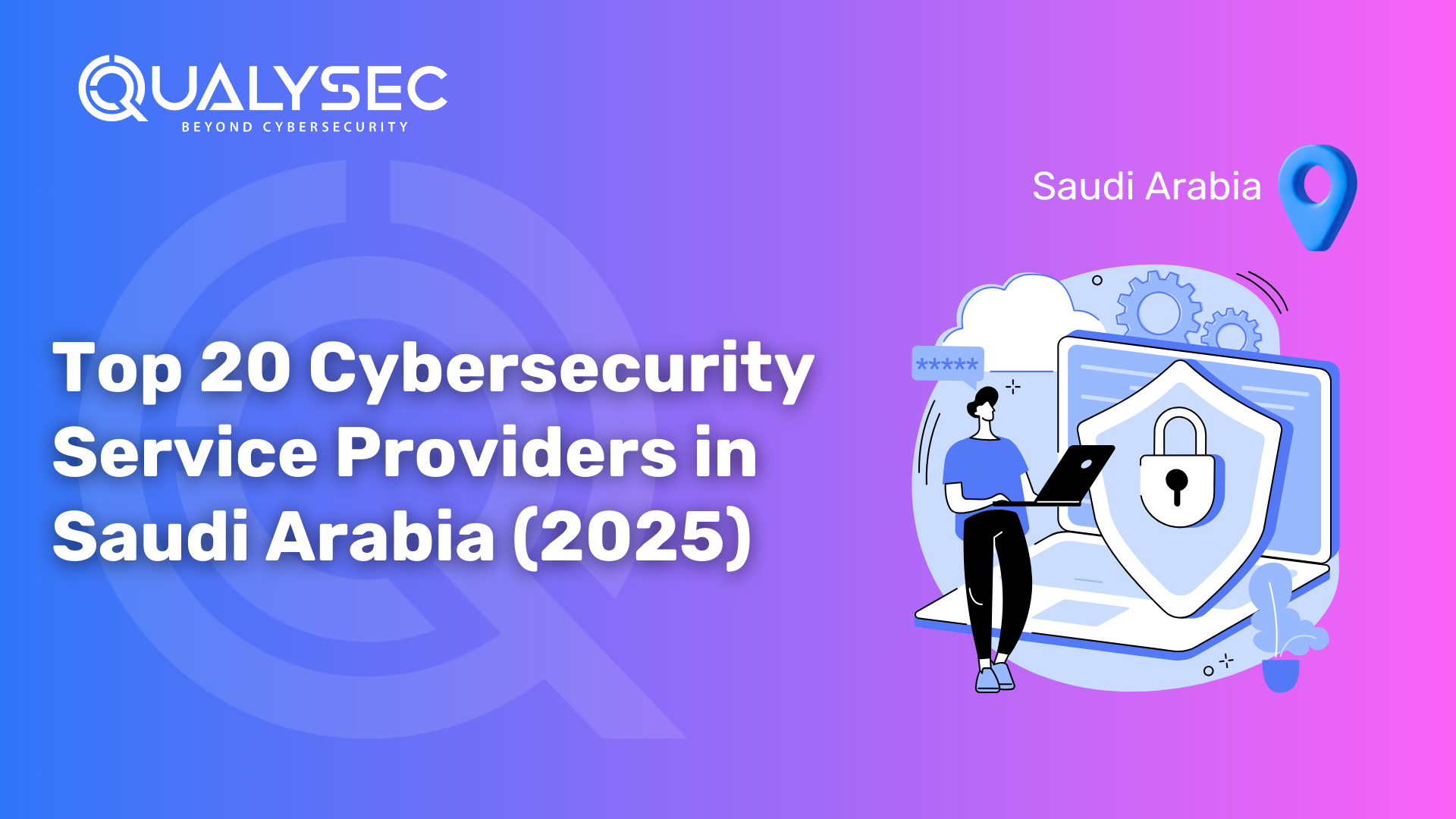
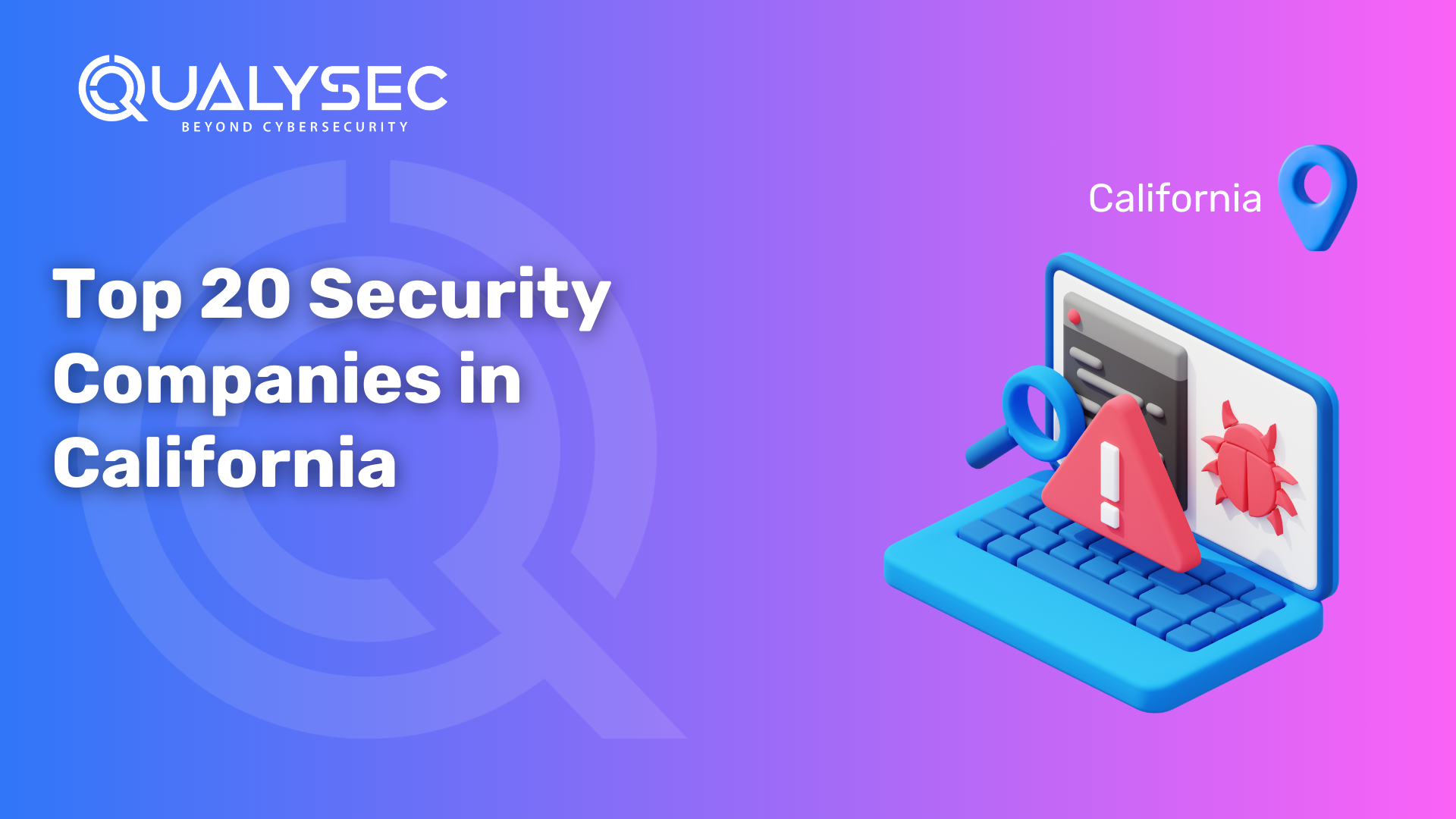







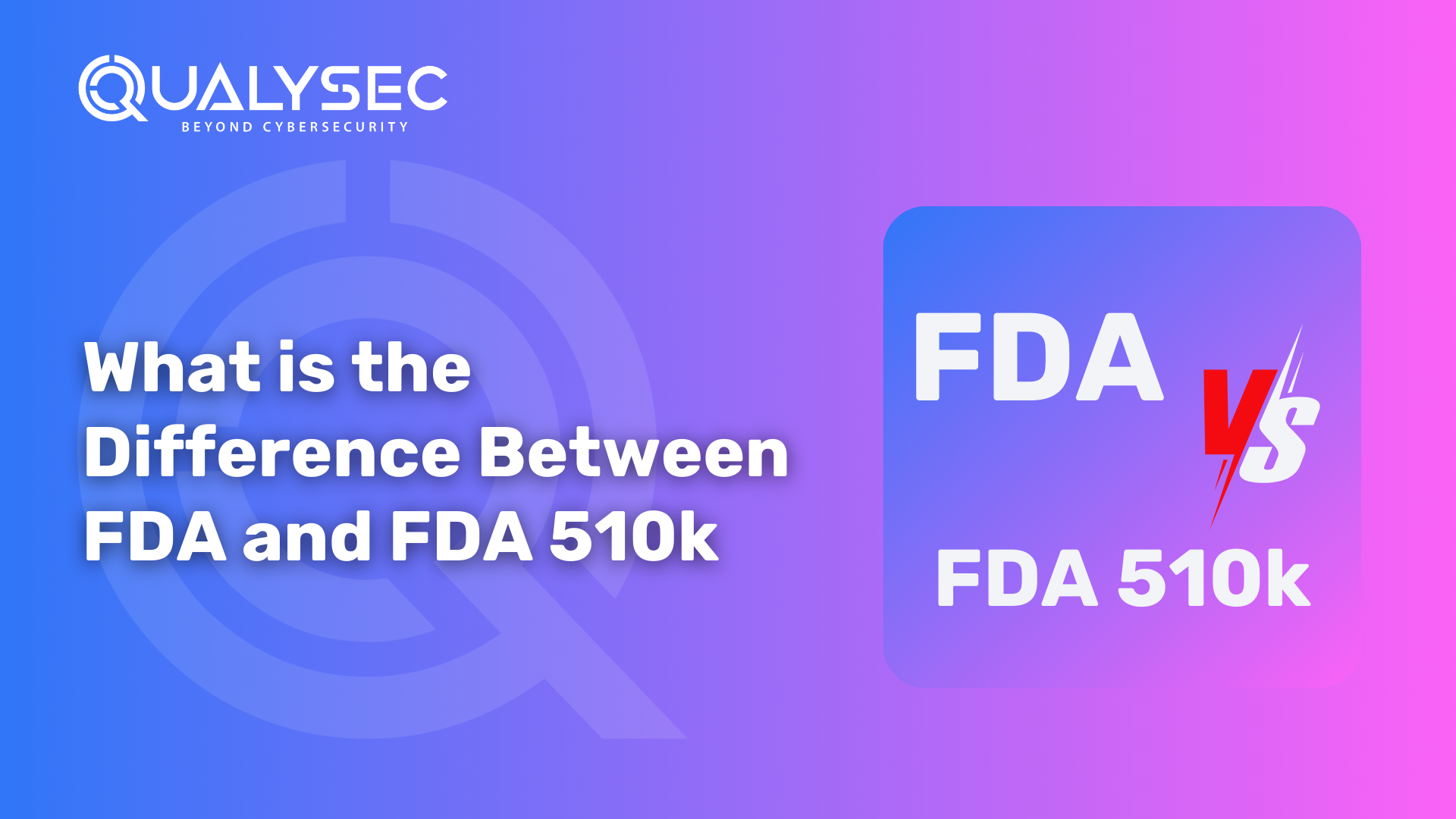









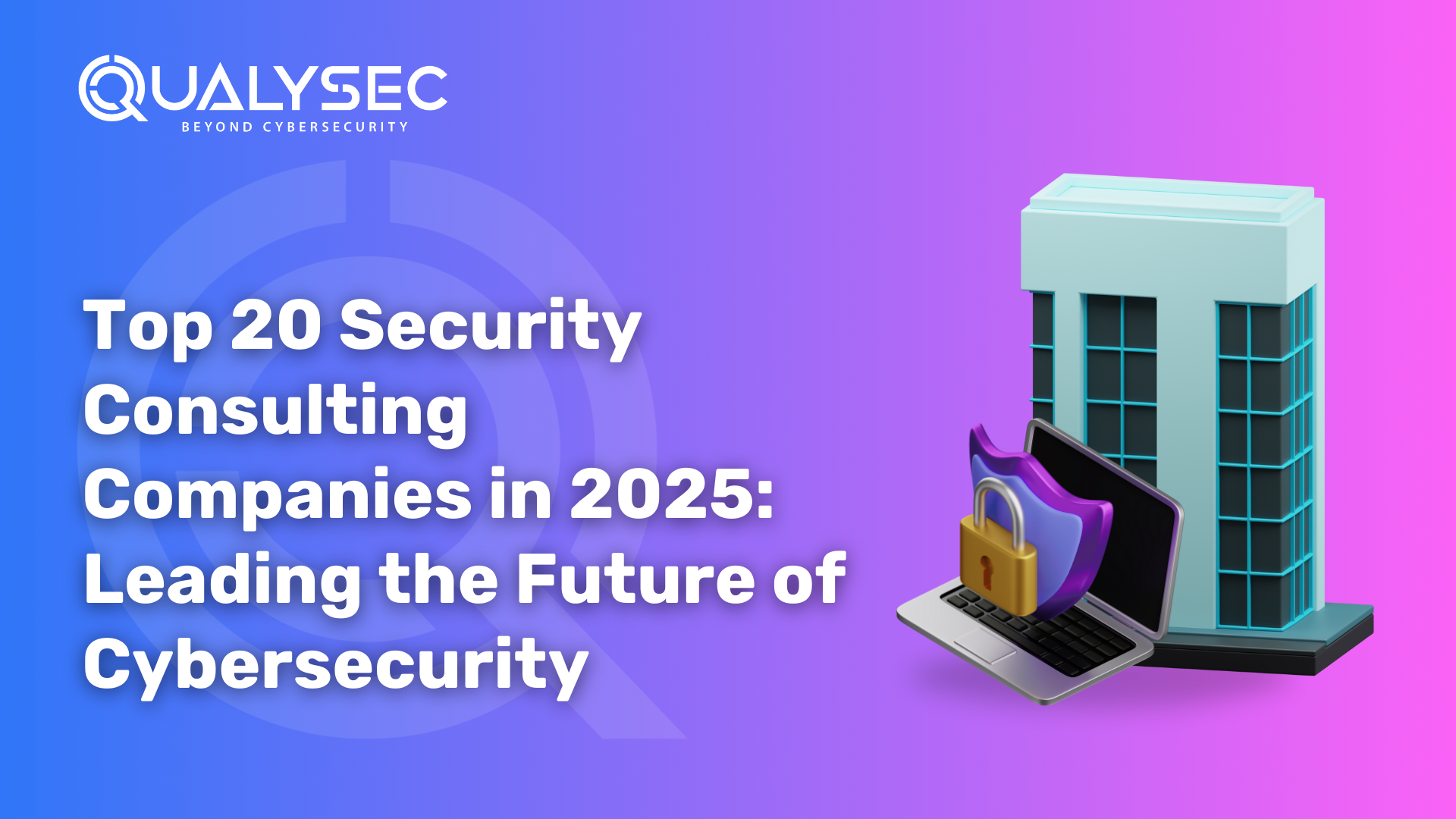
























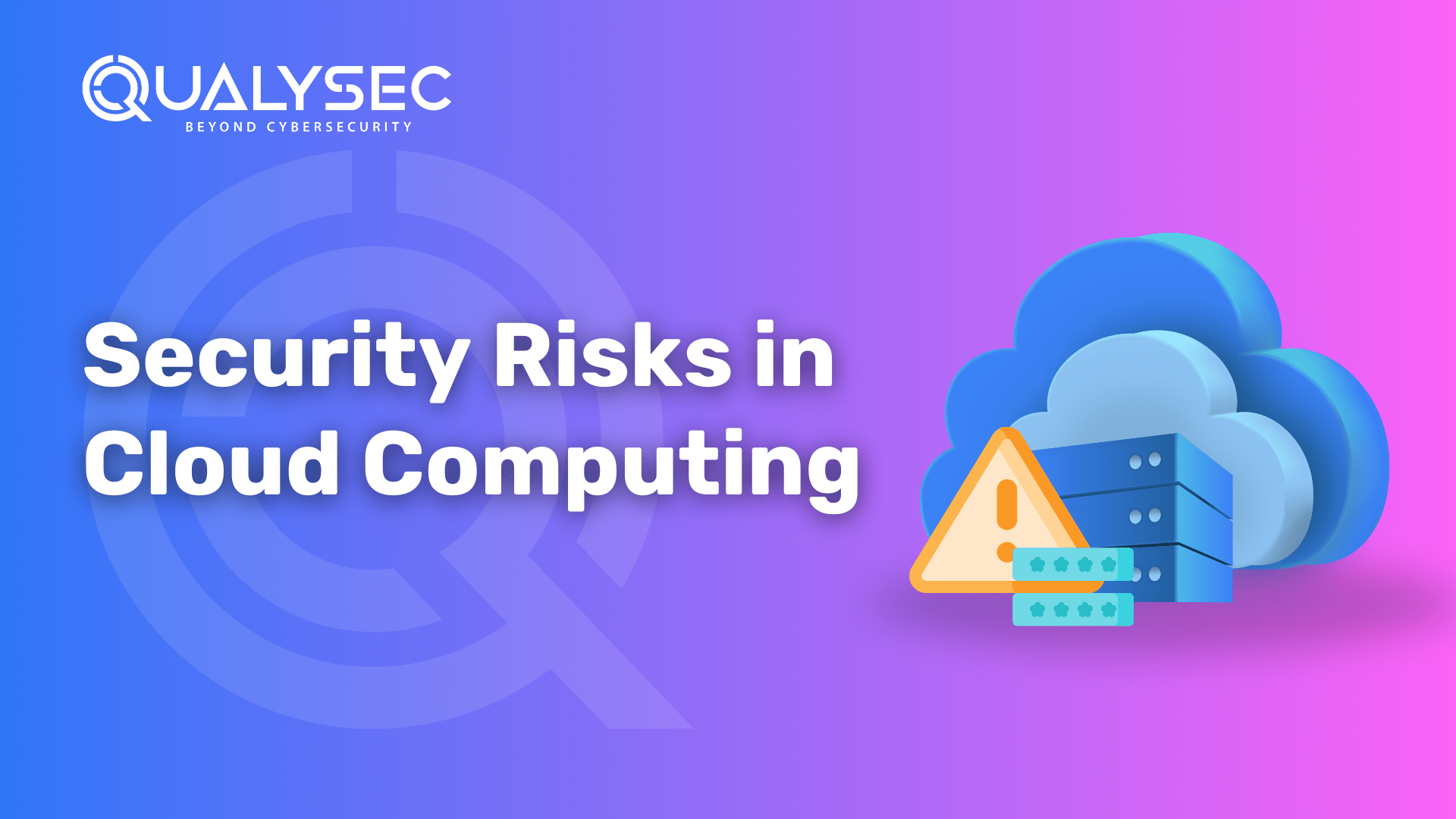







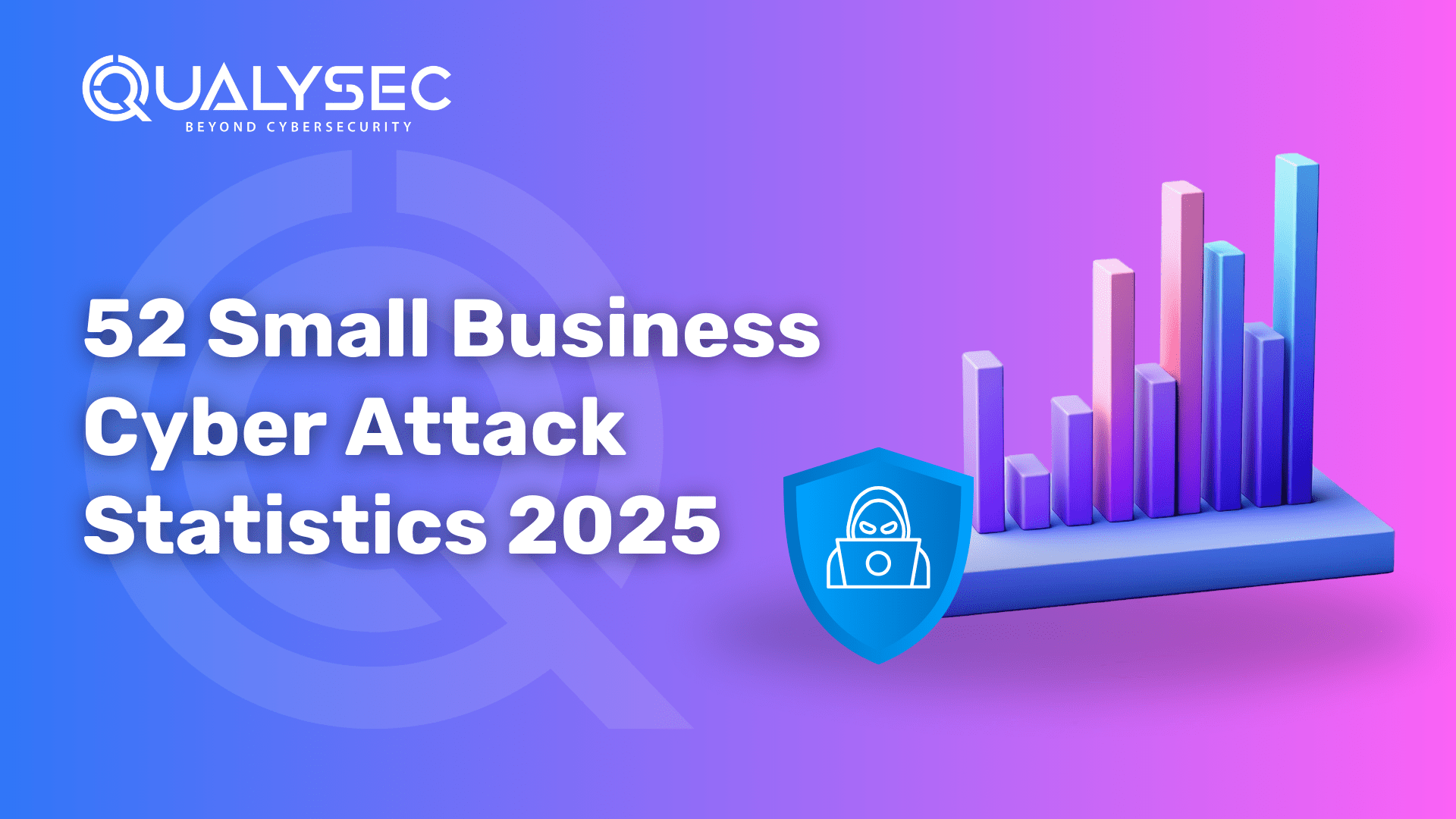

















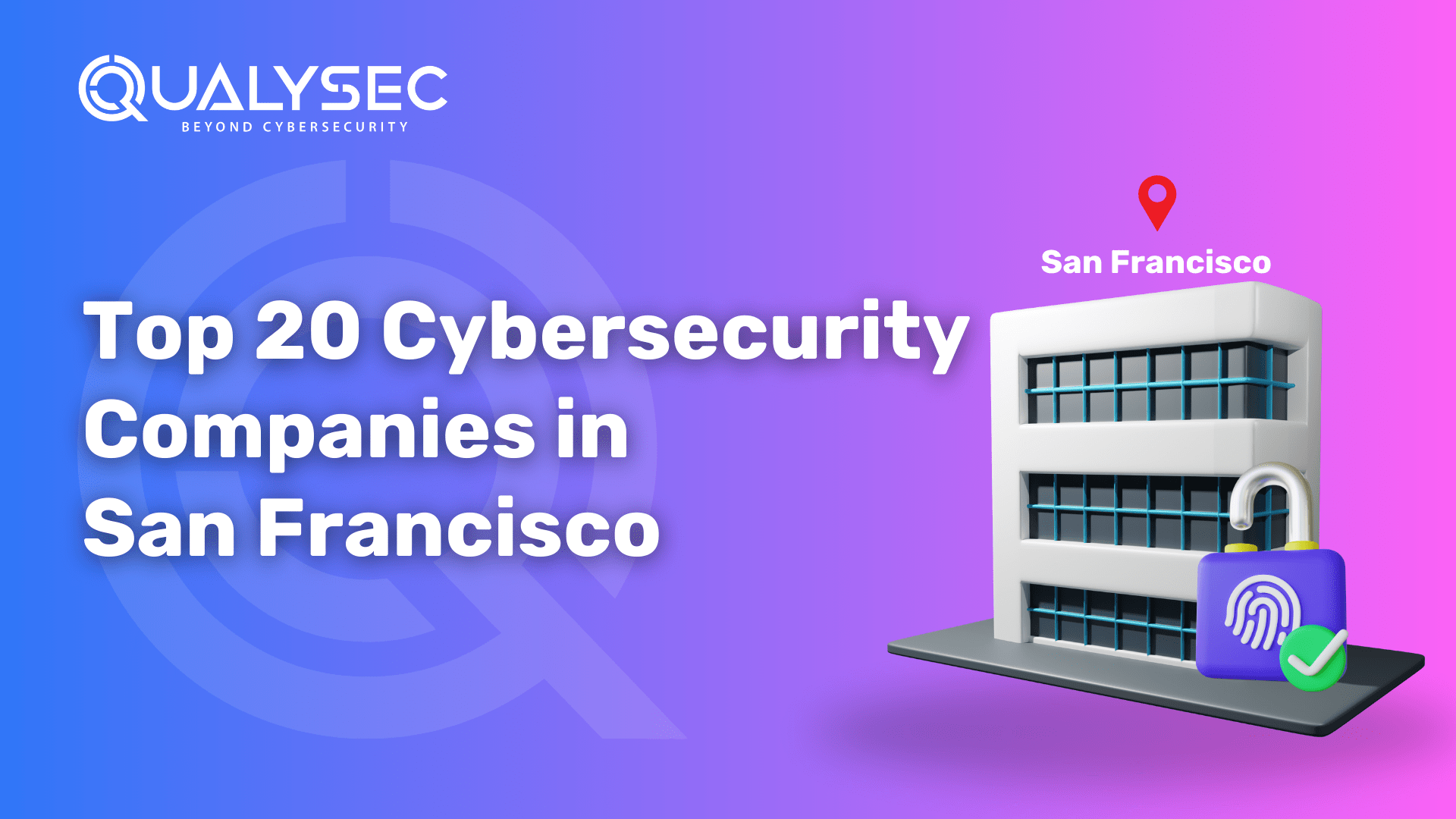








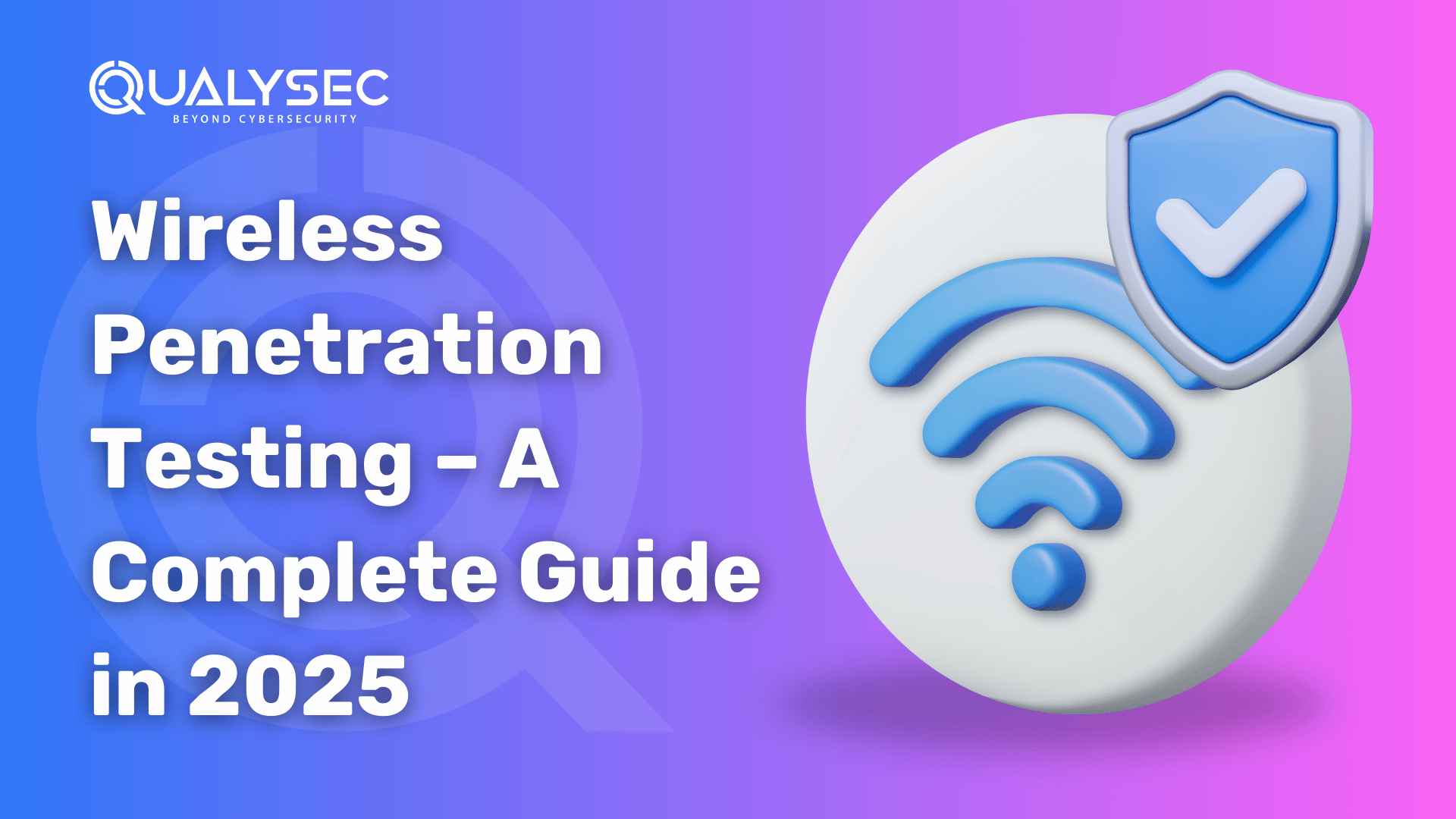




























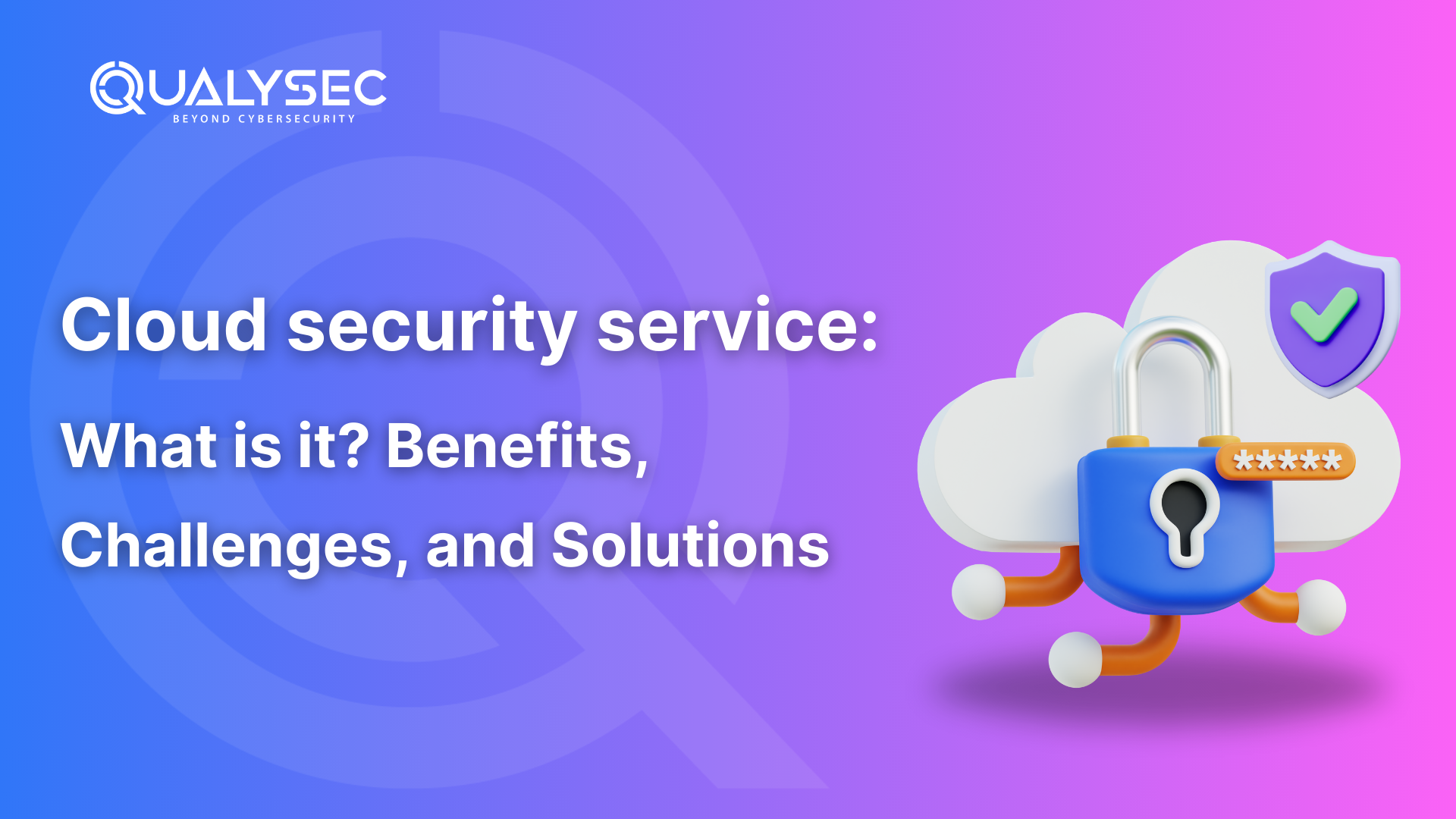


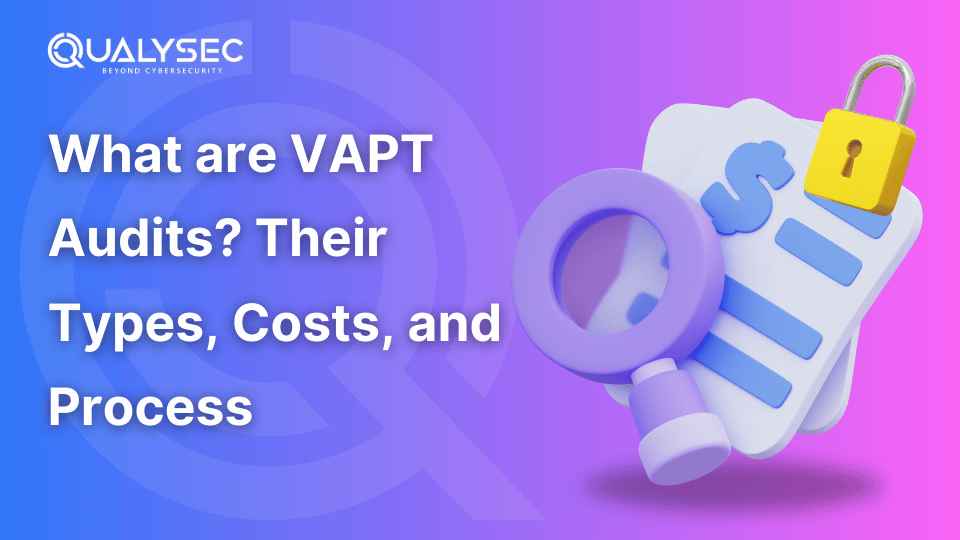








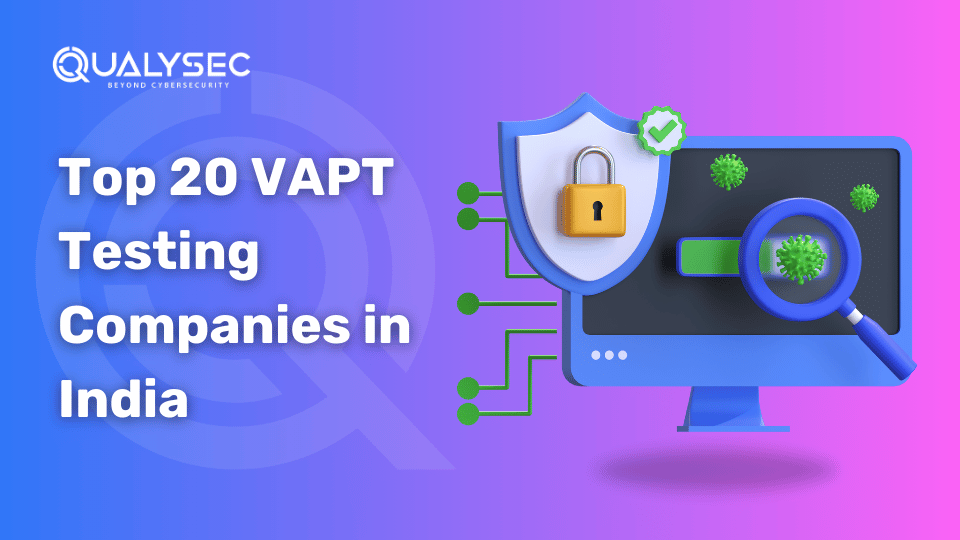


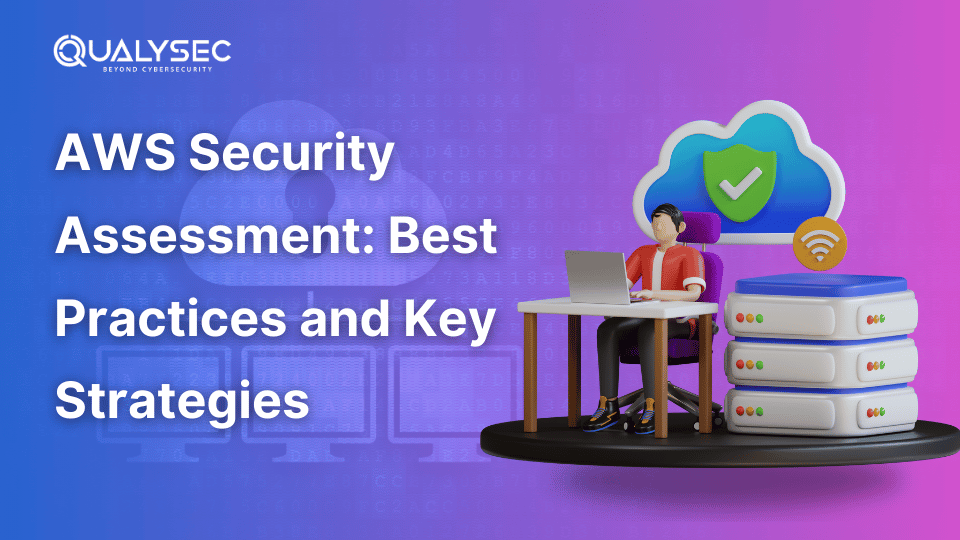




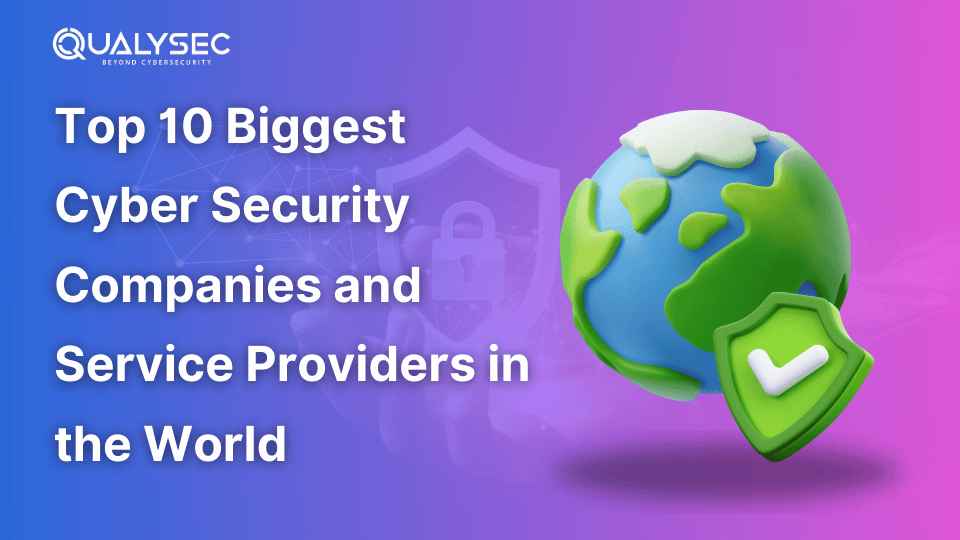















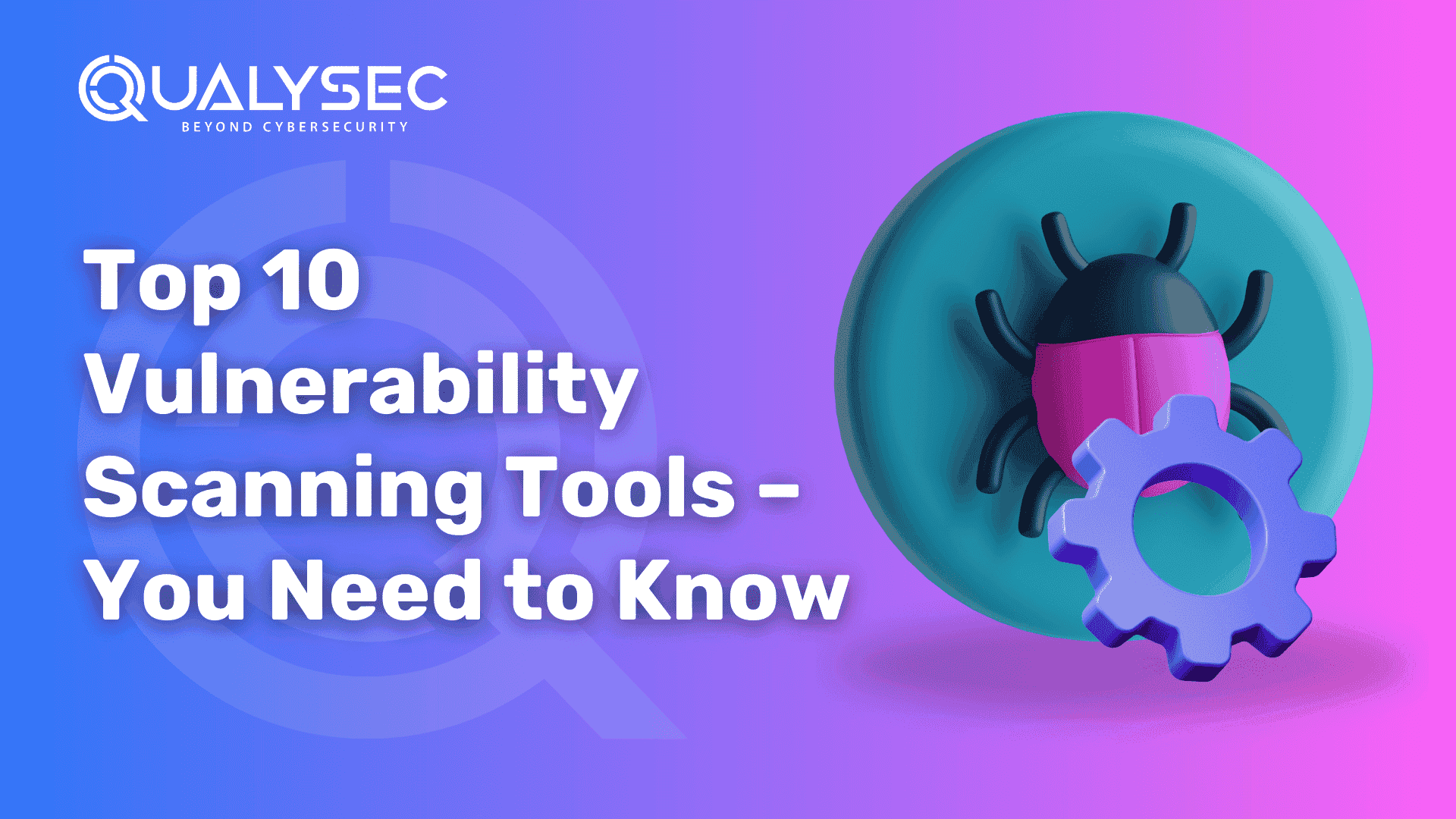


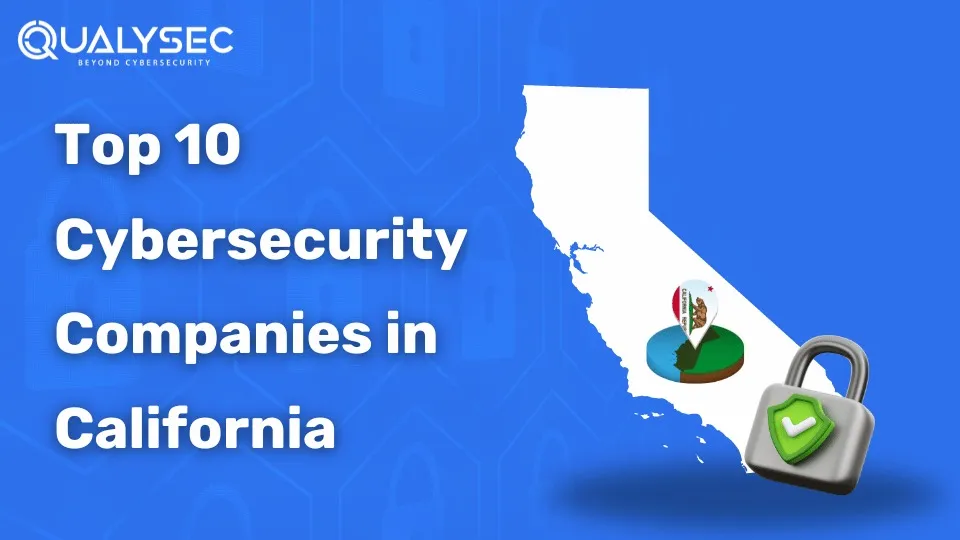
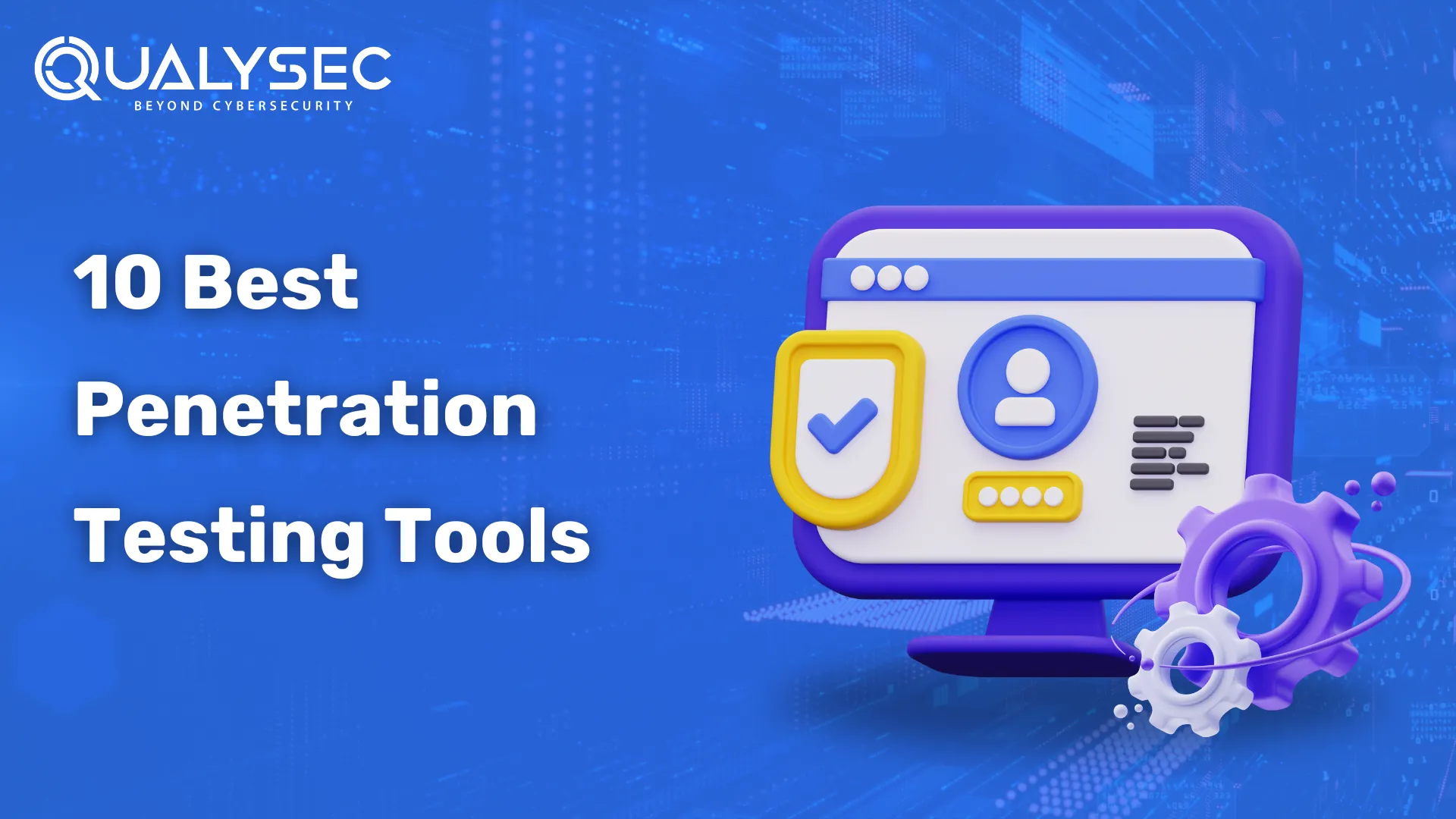









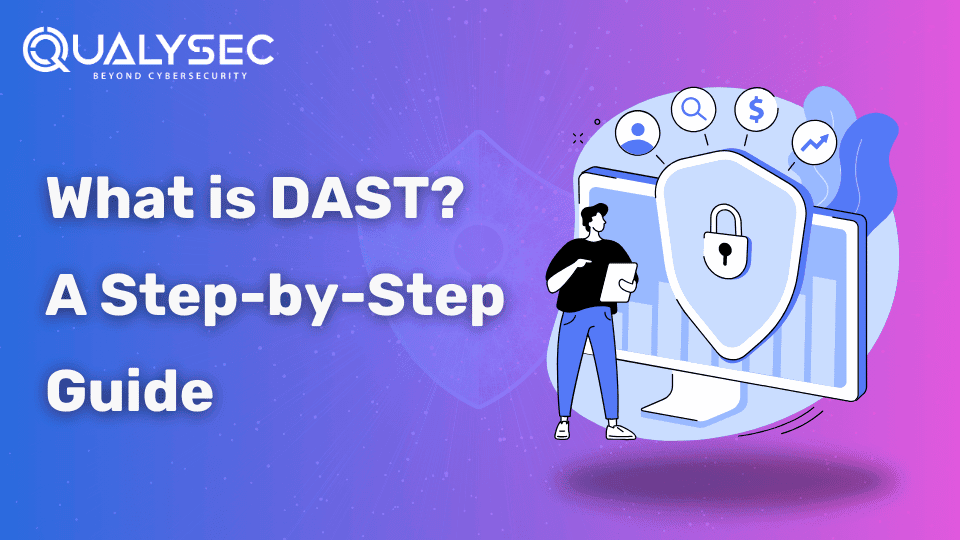

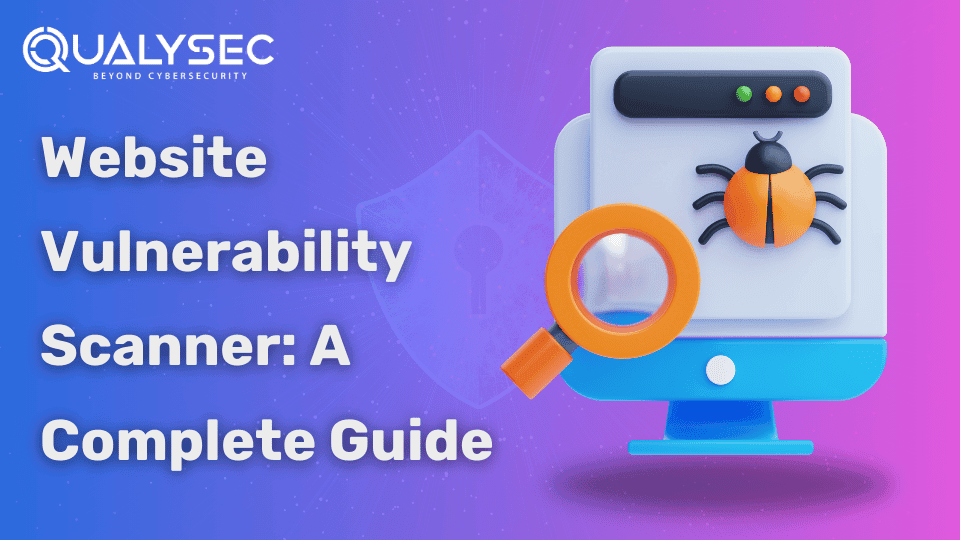

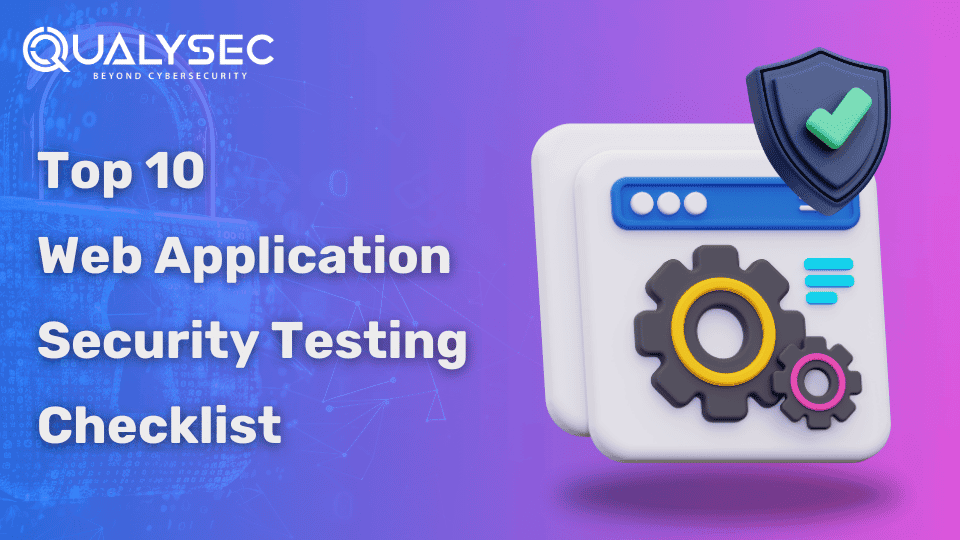

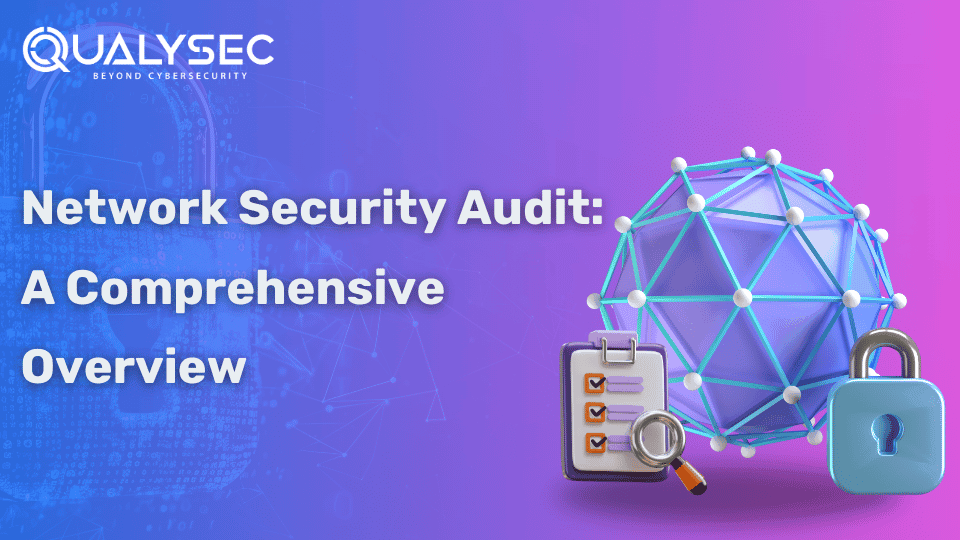











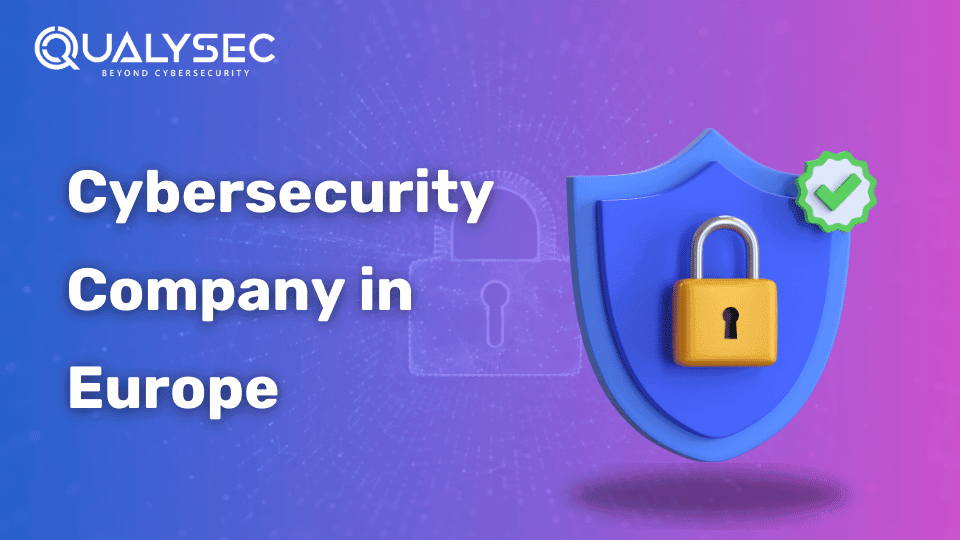
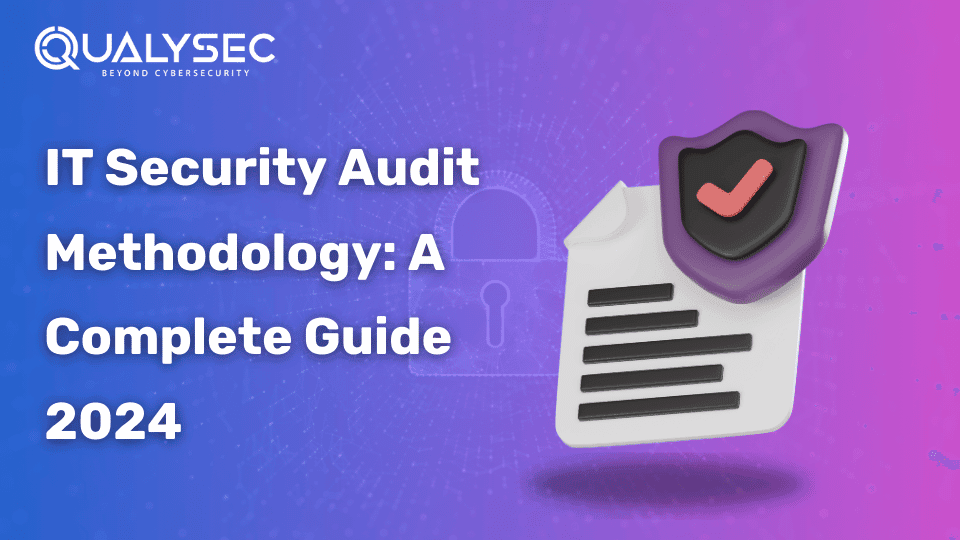

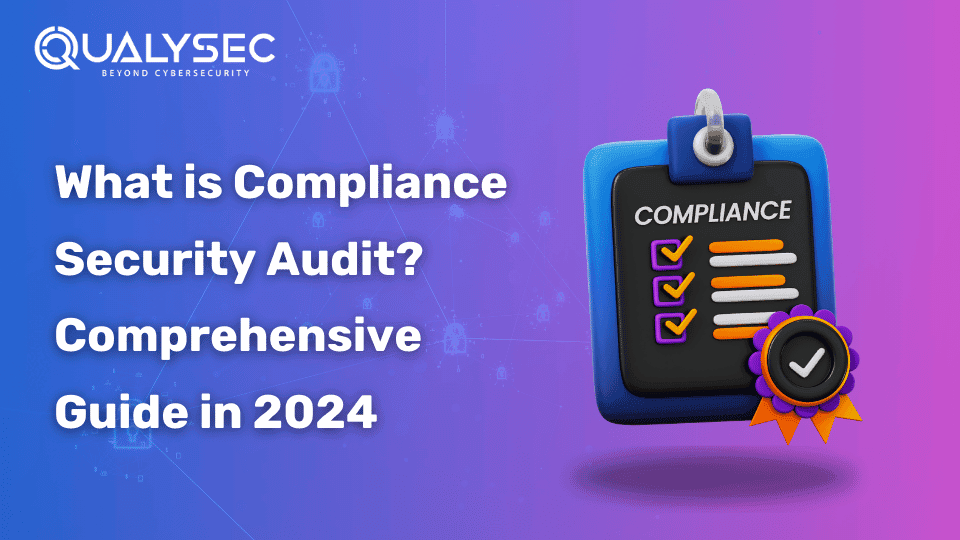


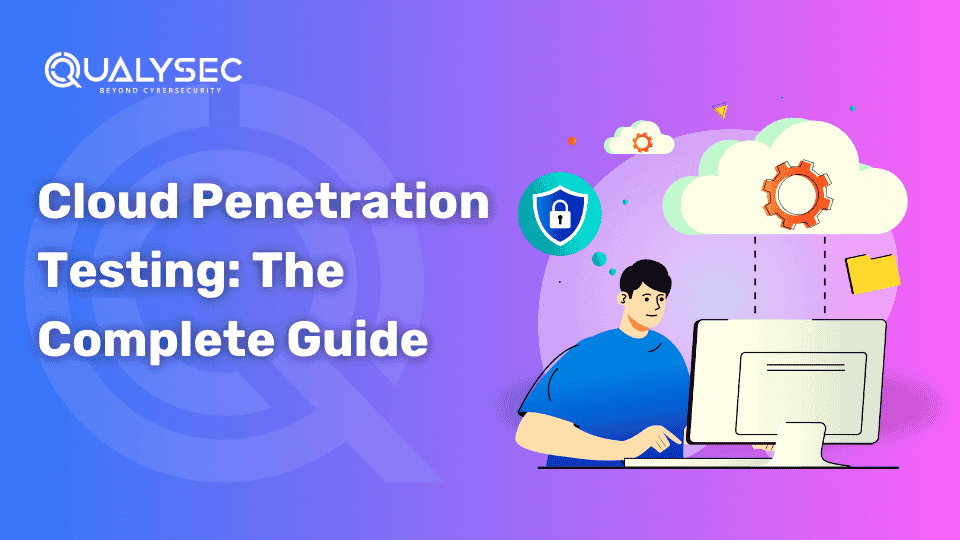


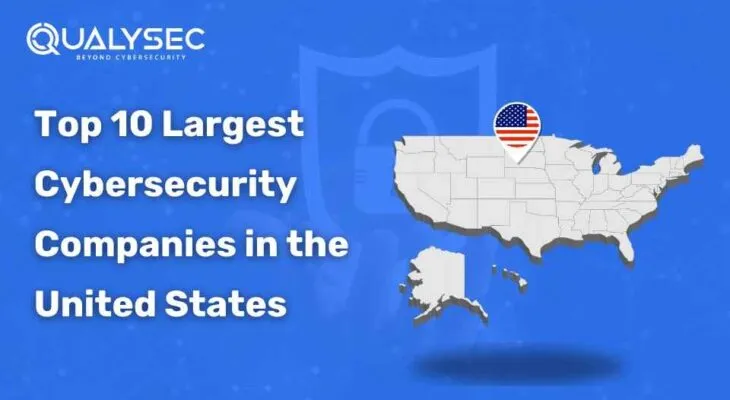


























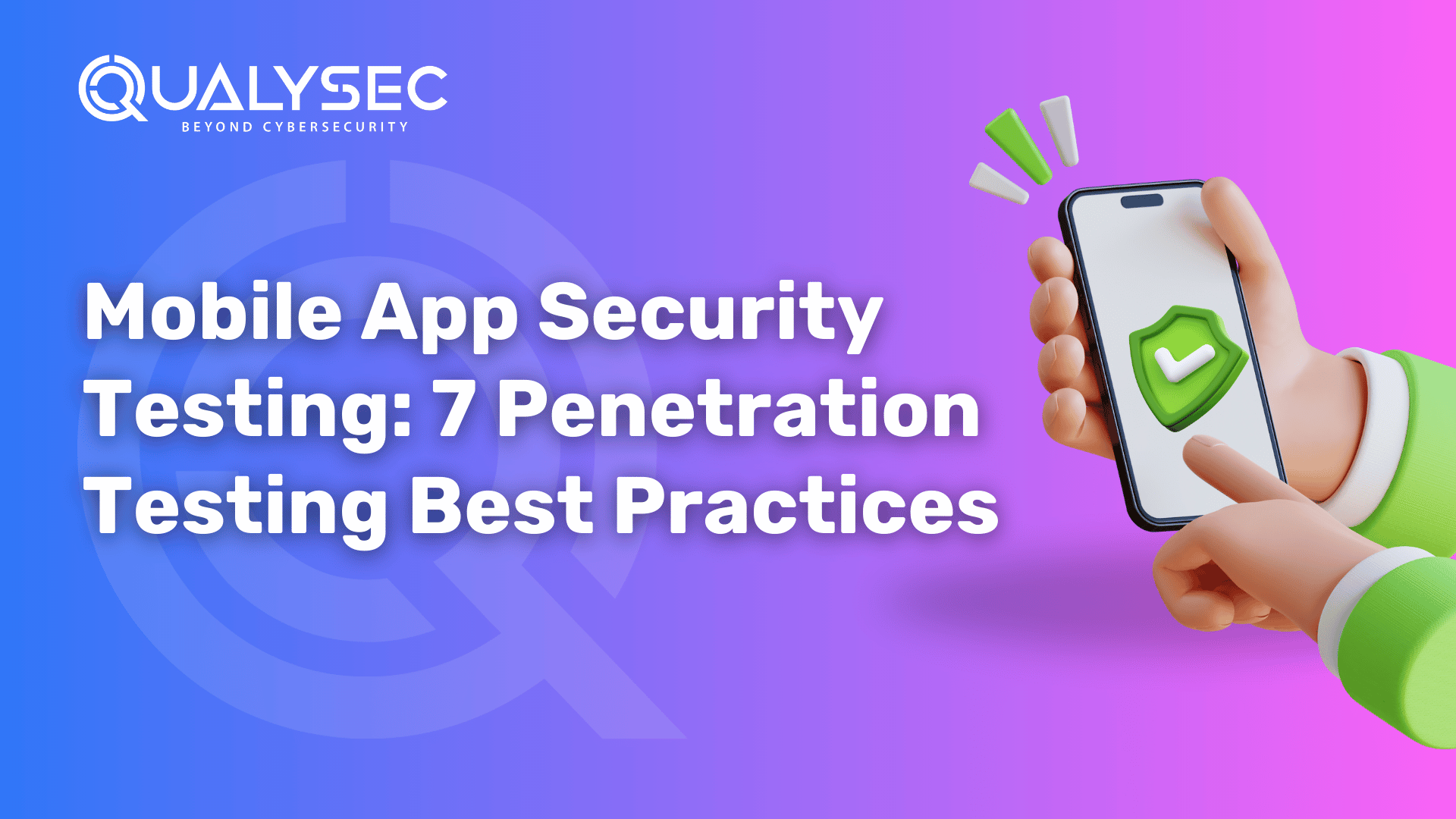














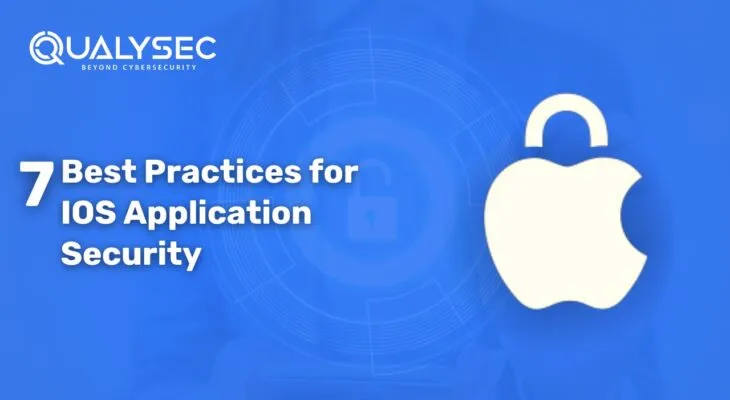


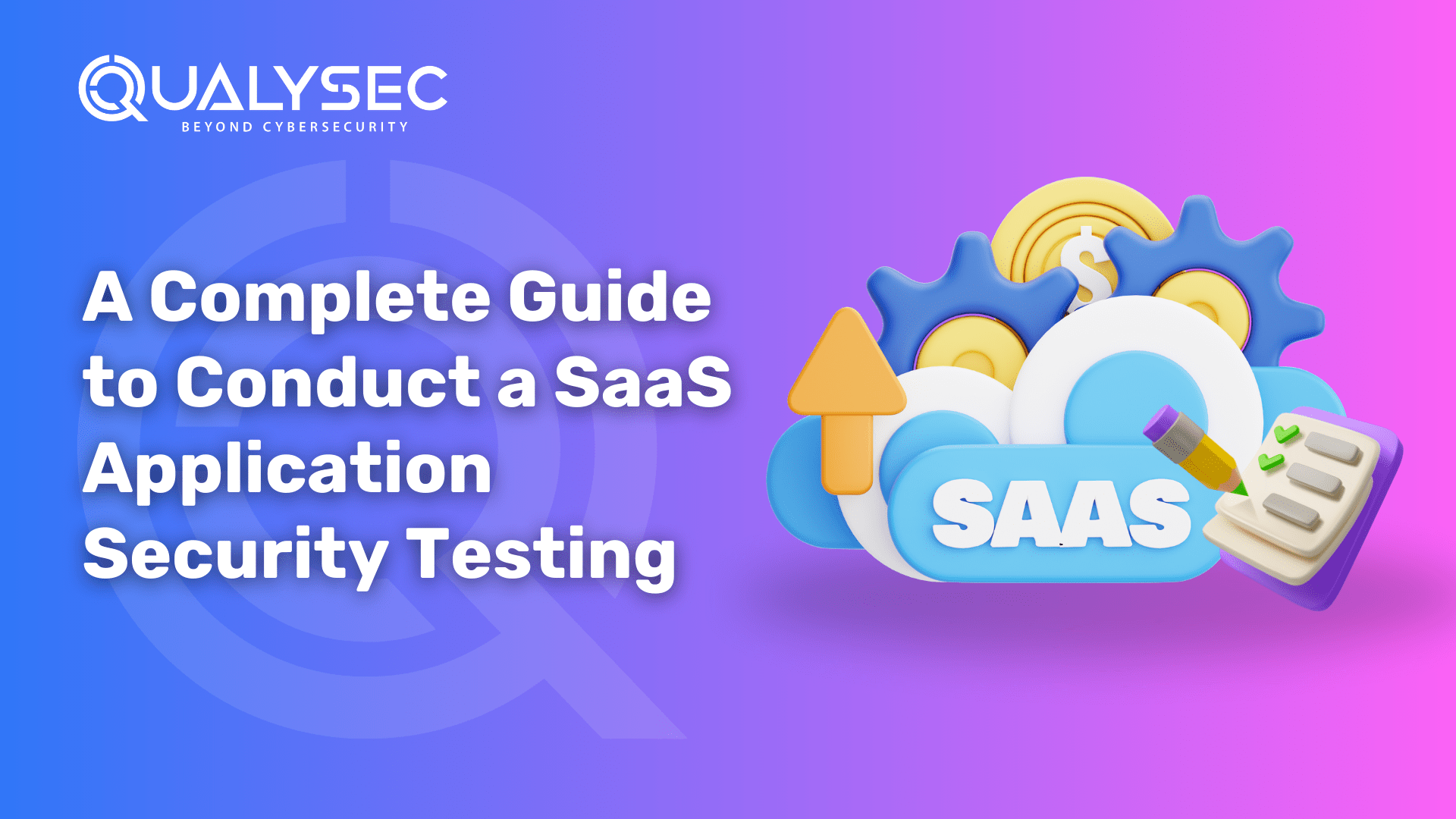





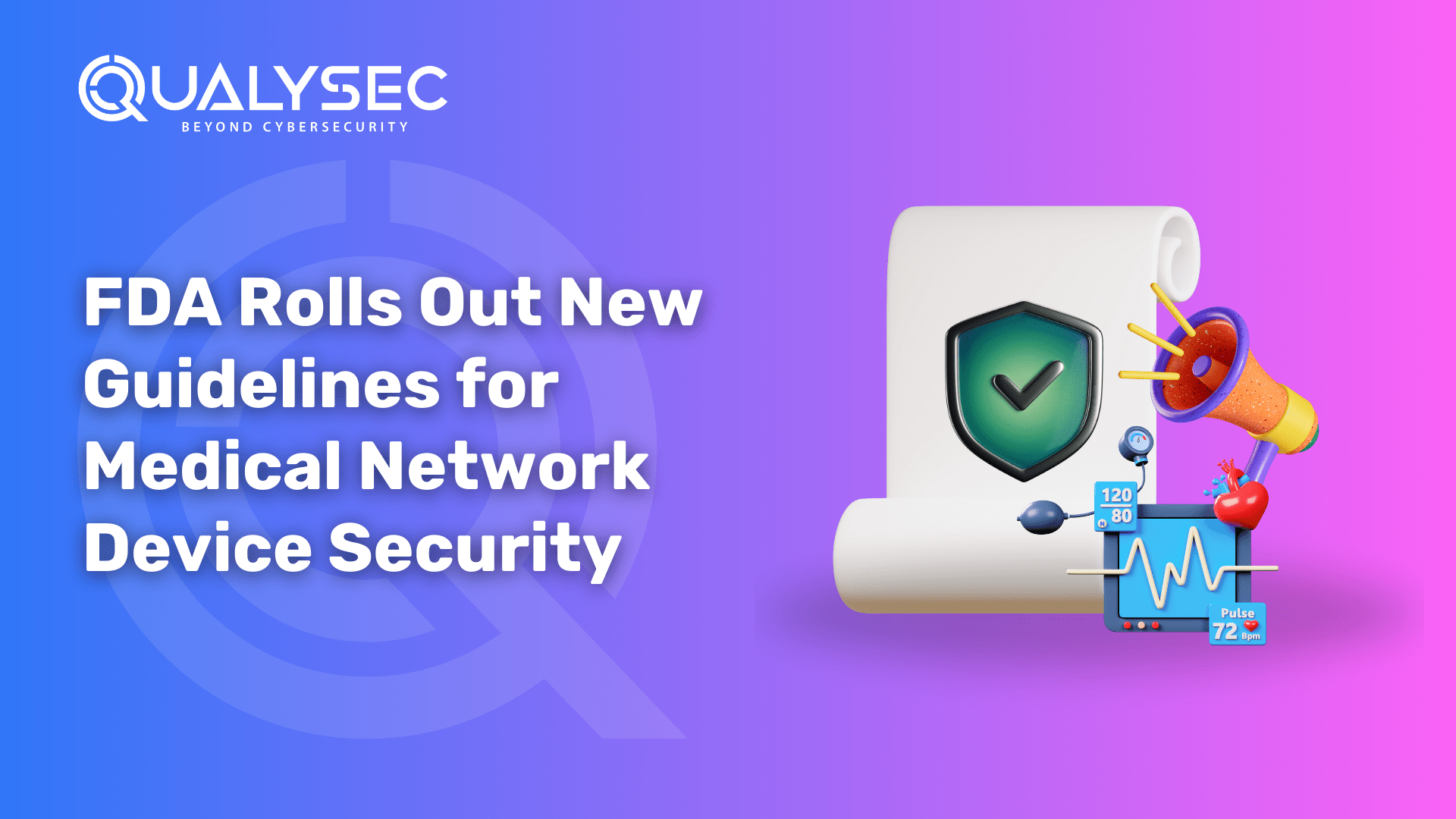





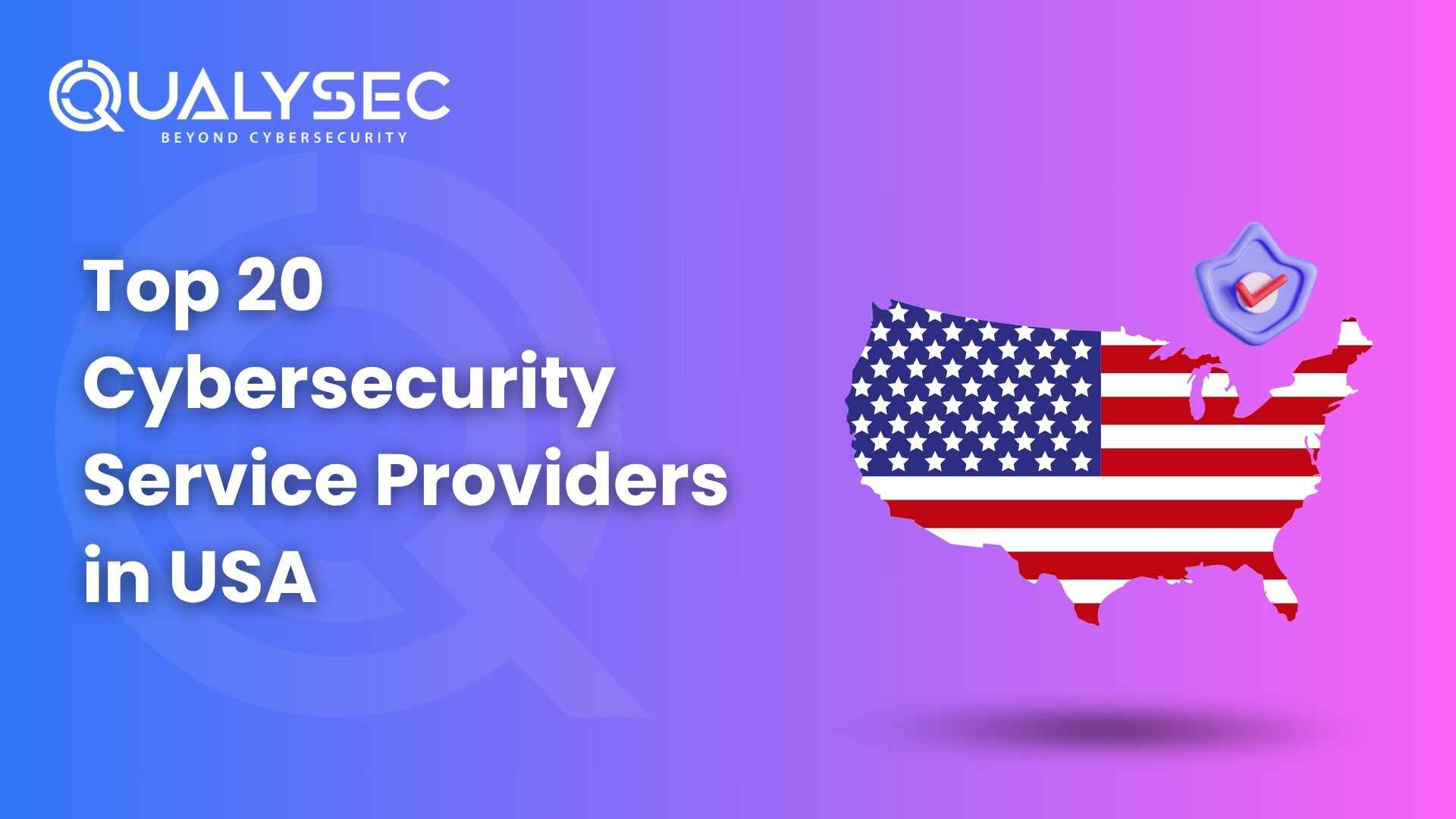










































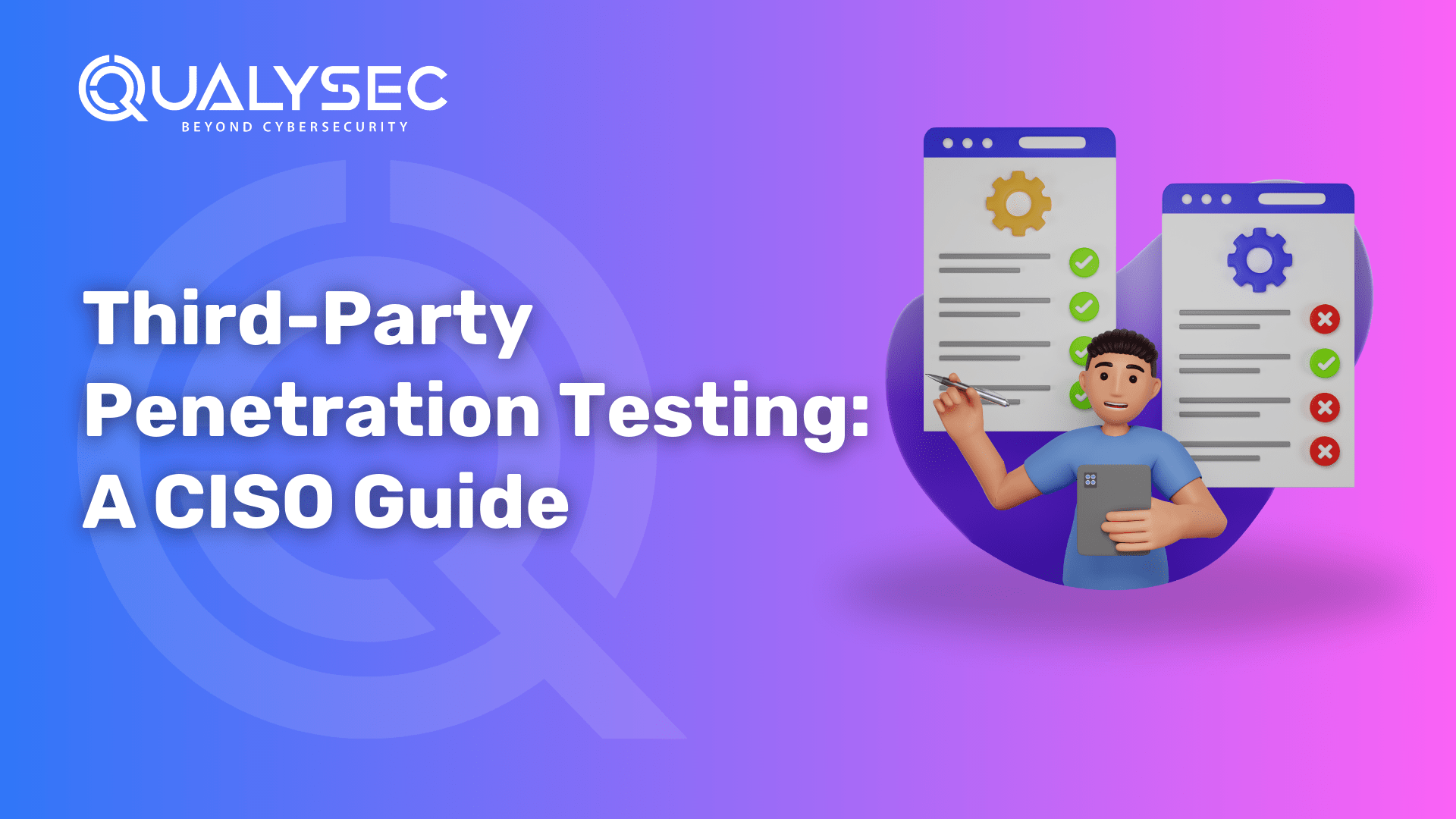





































































































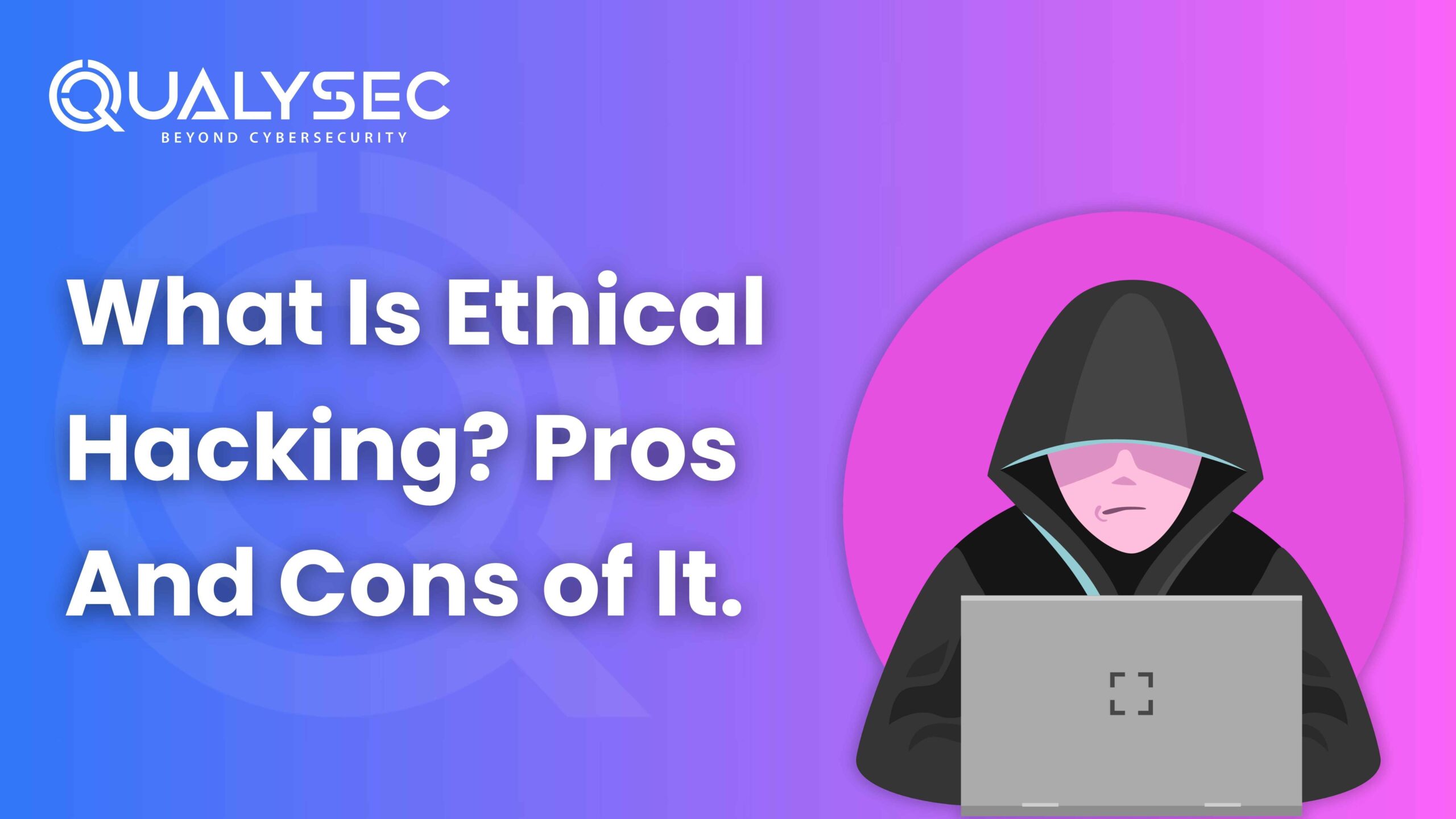







































0 Comments